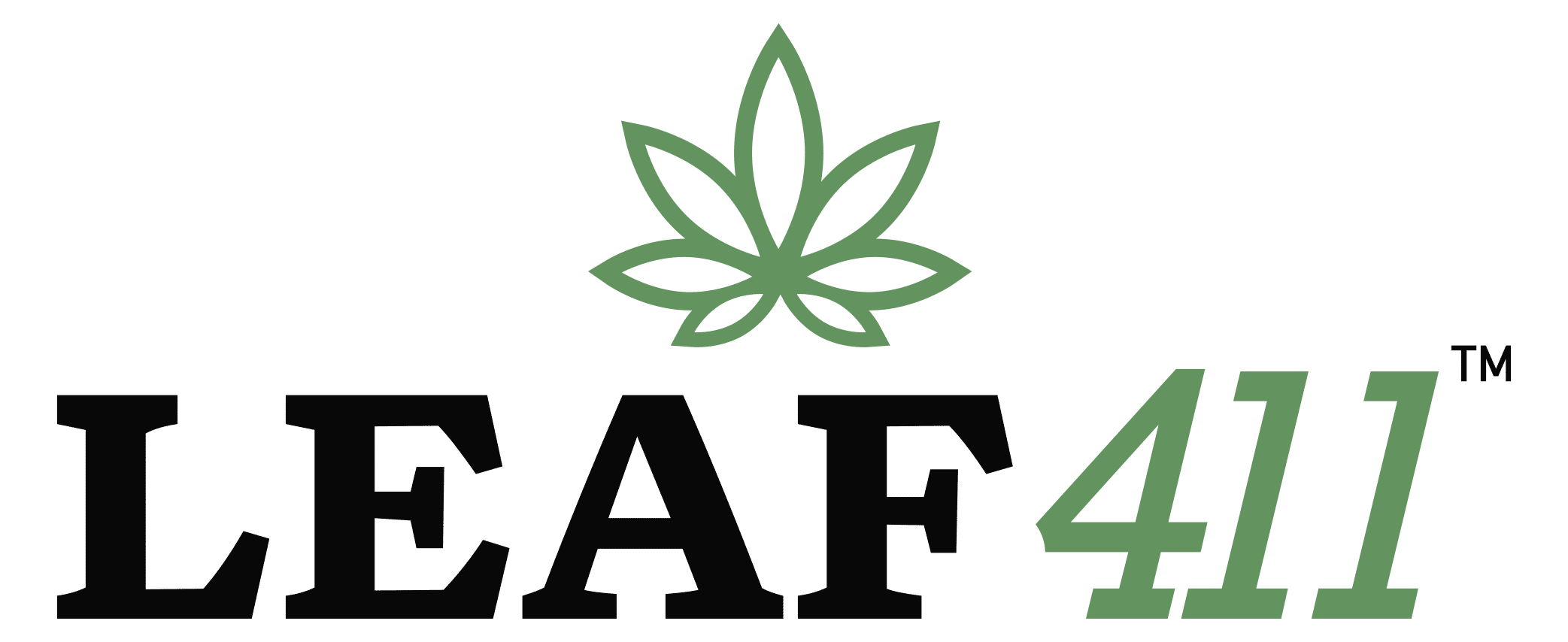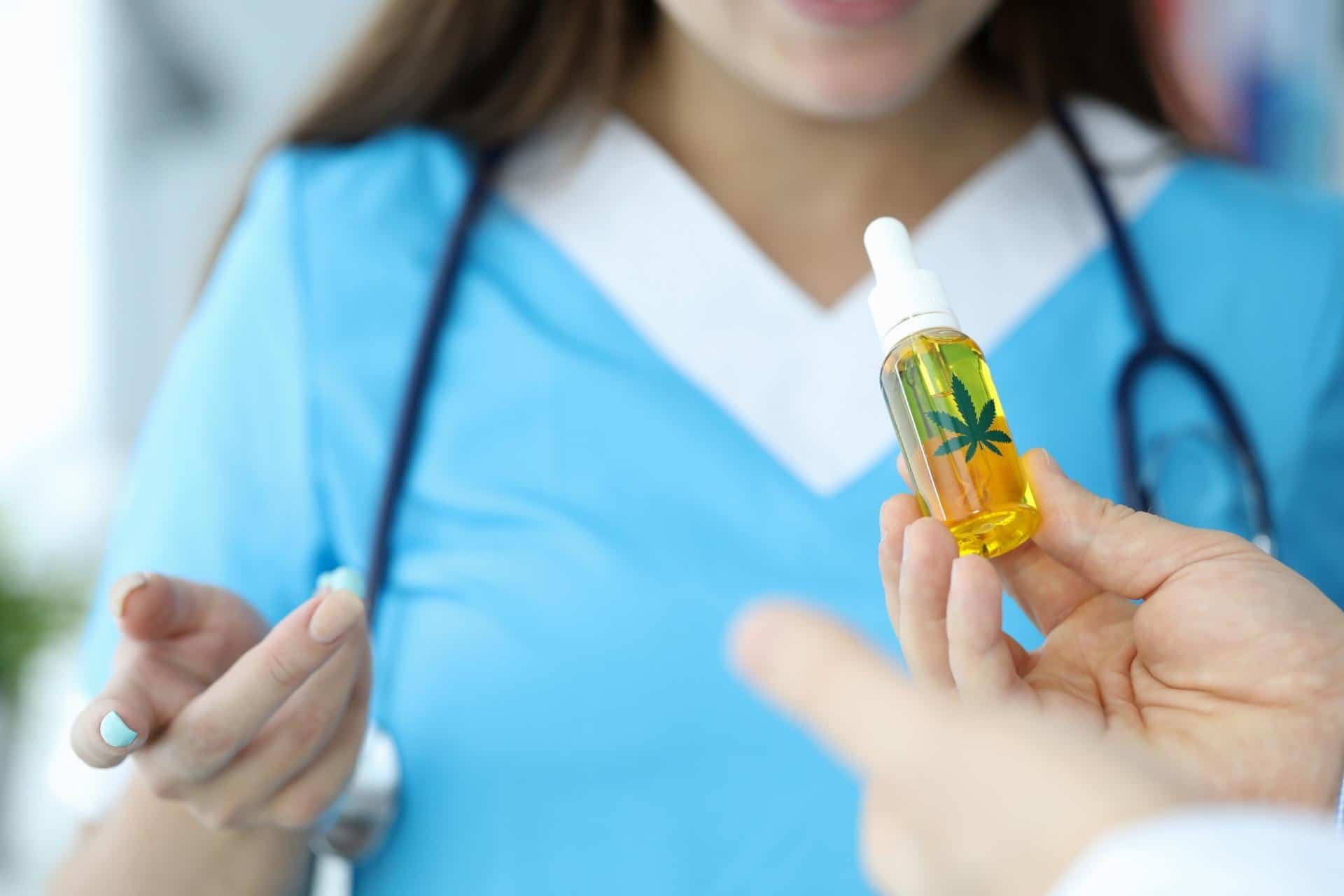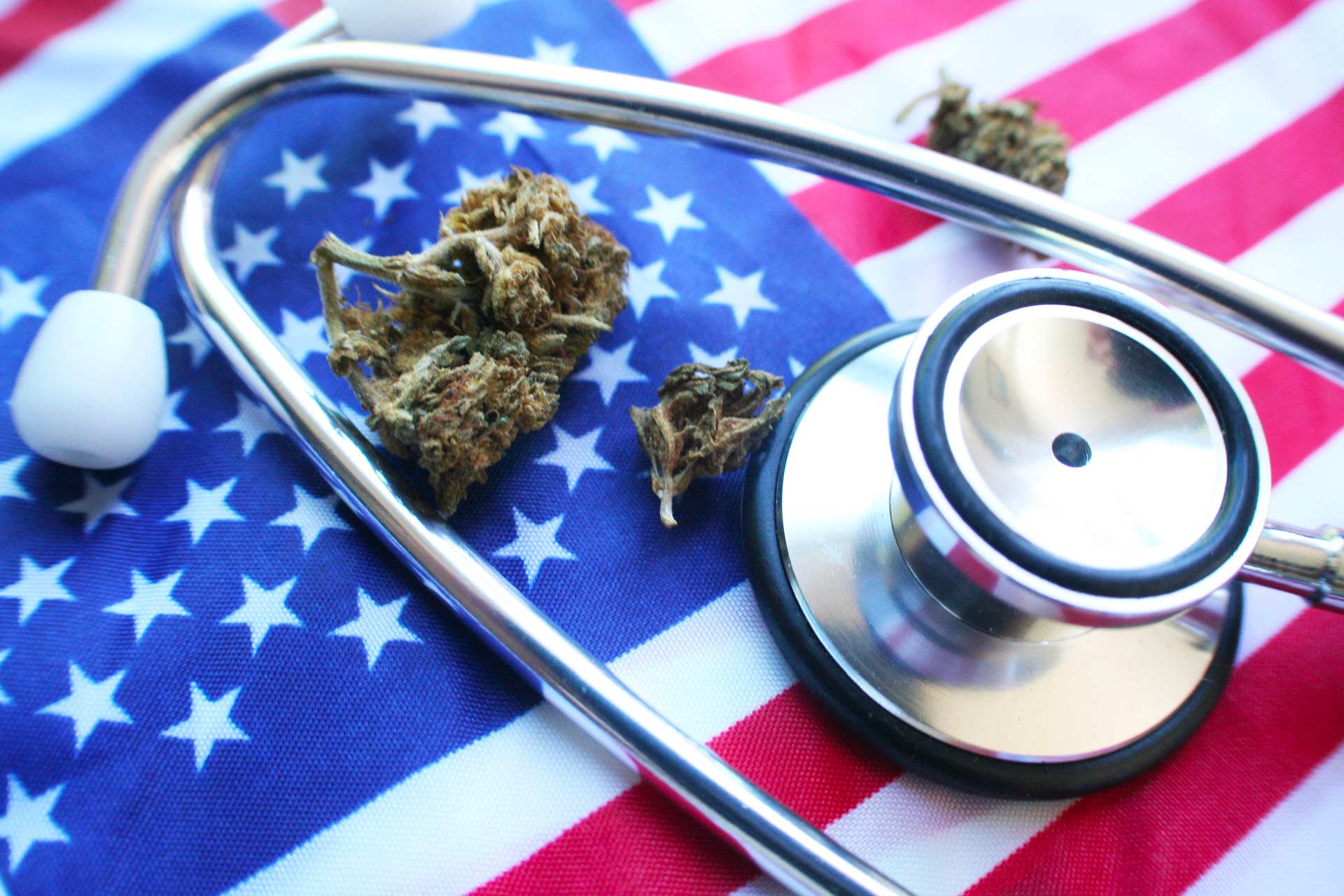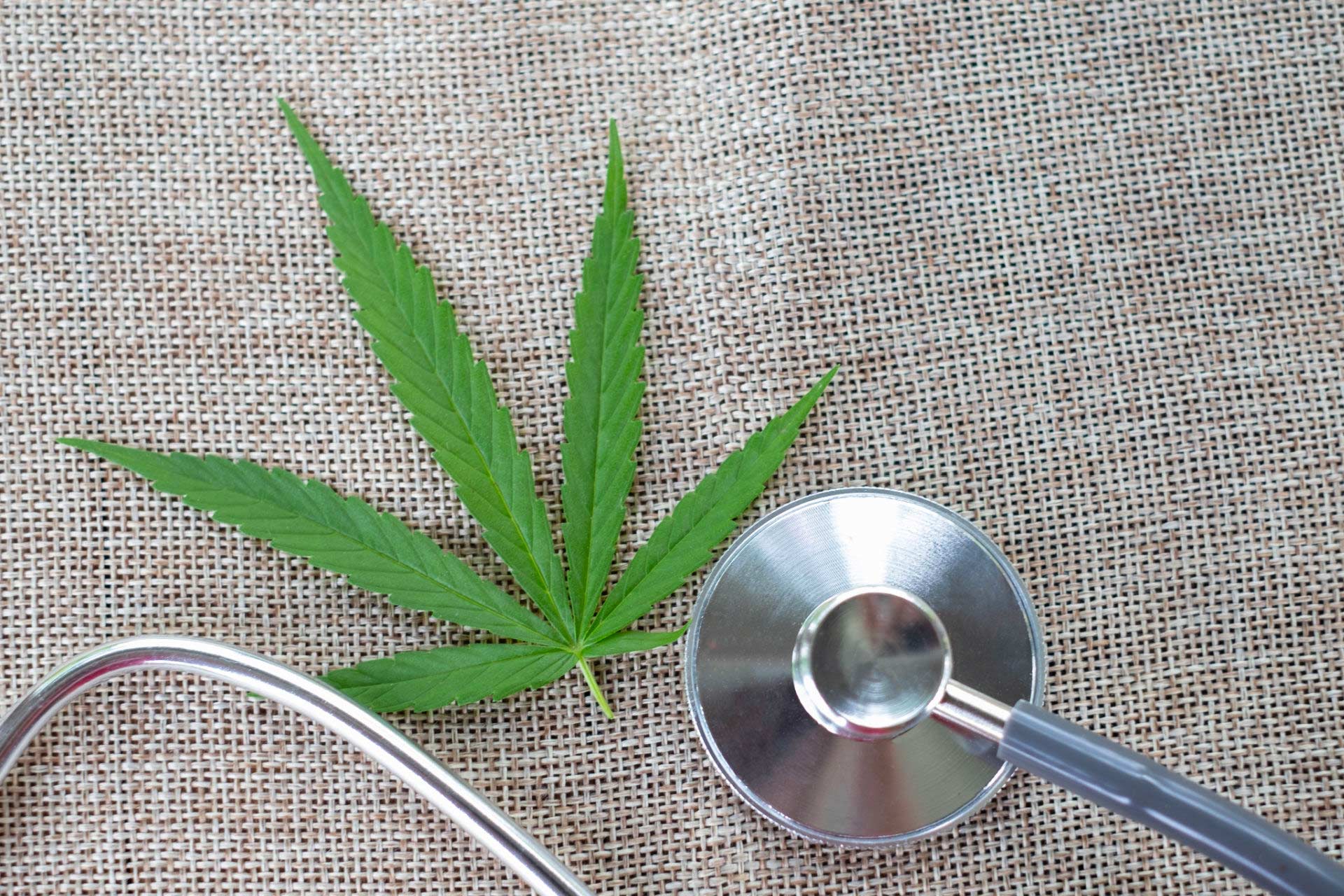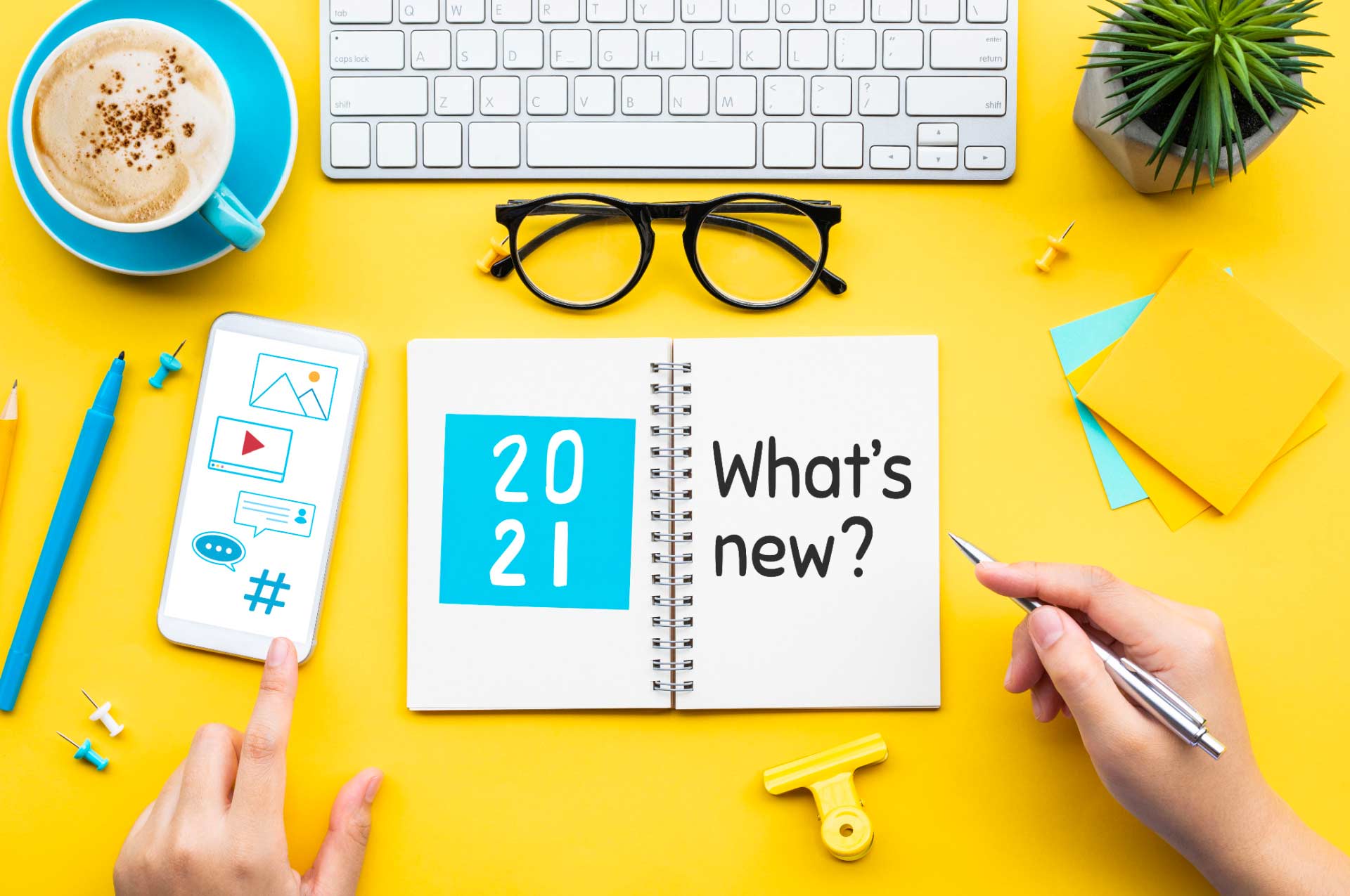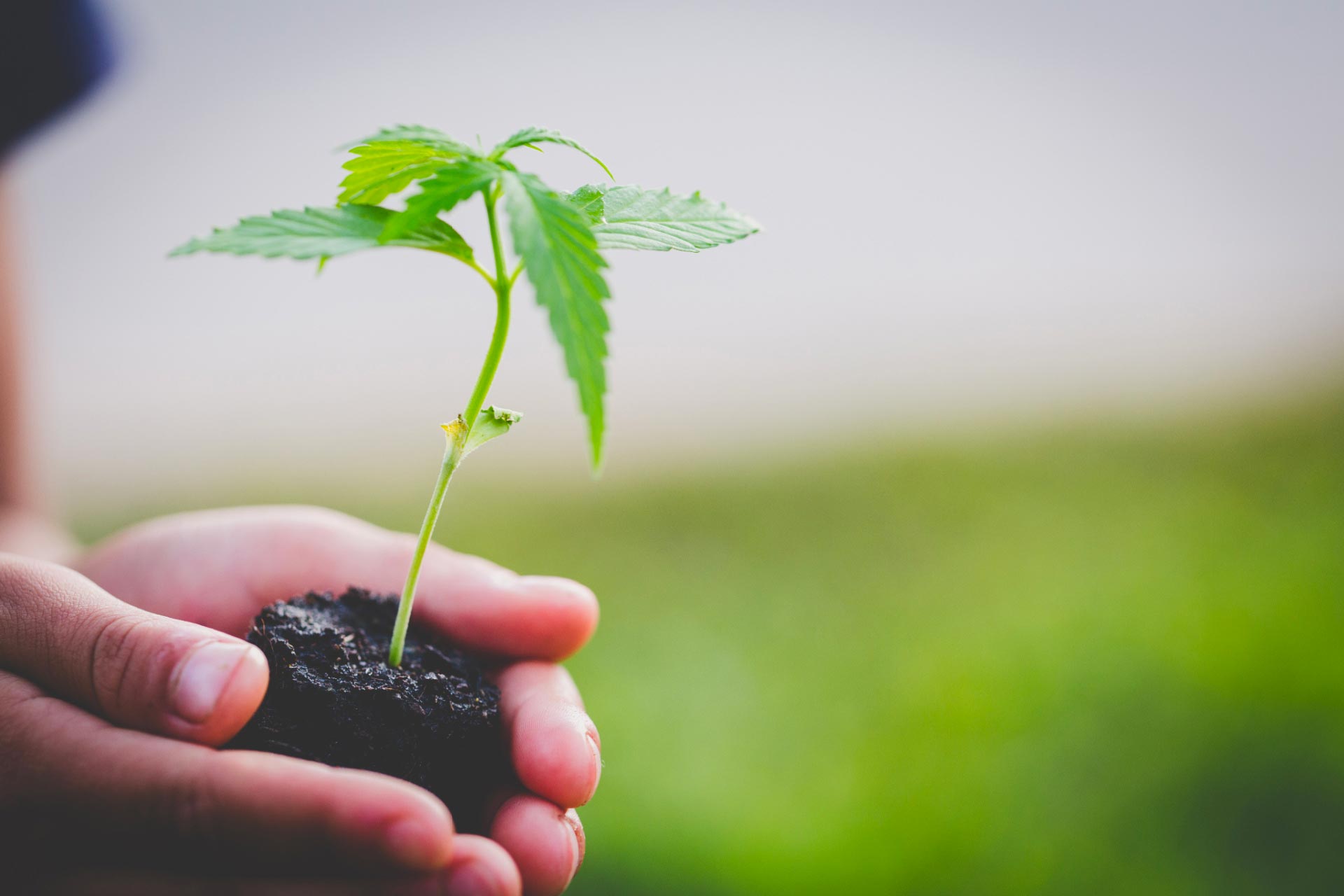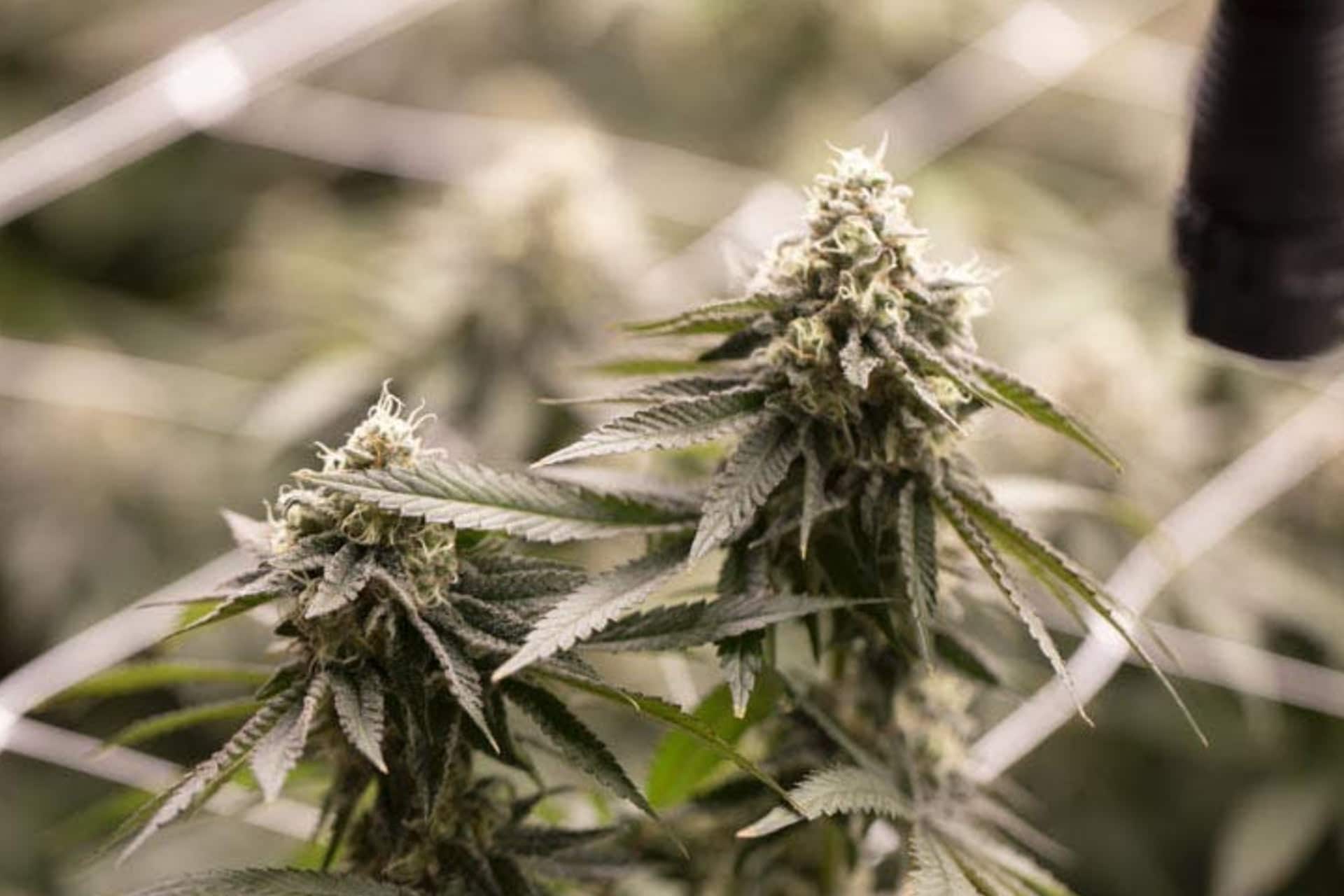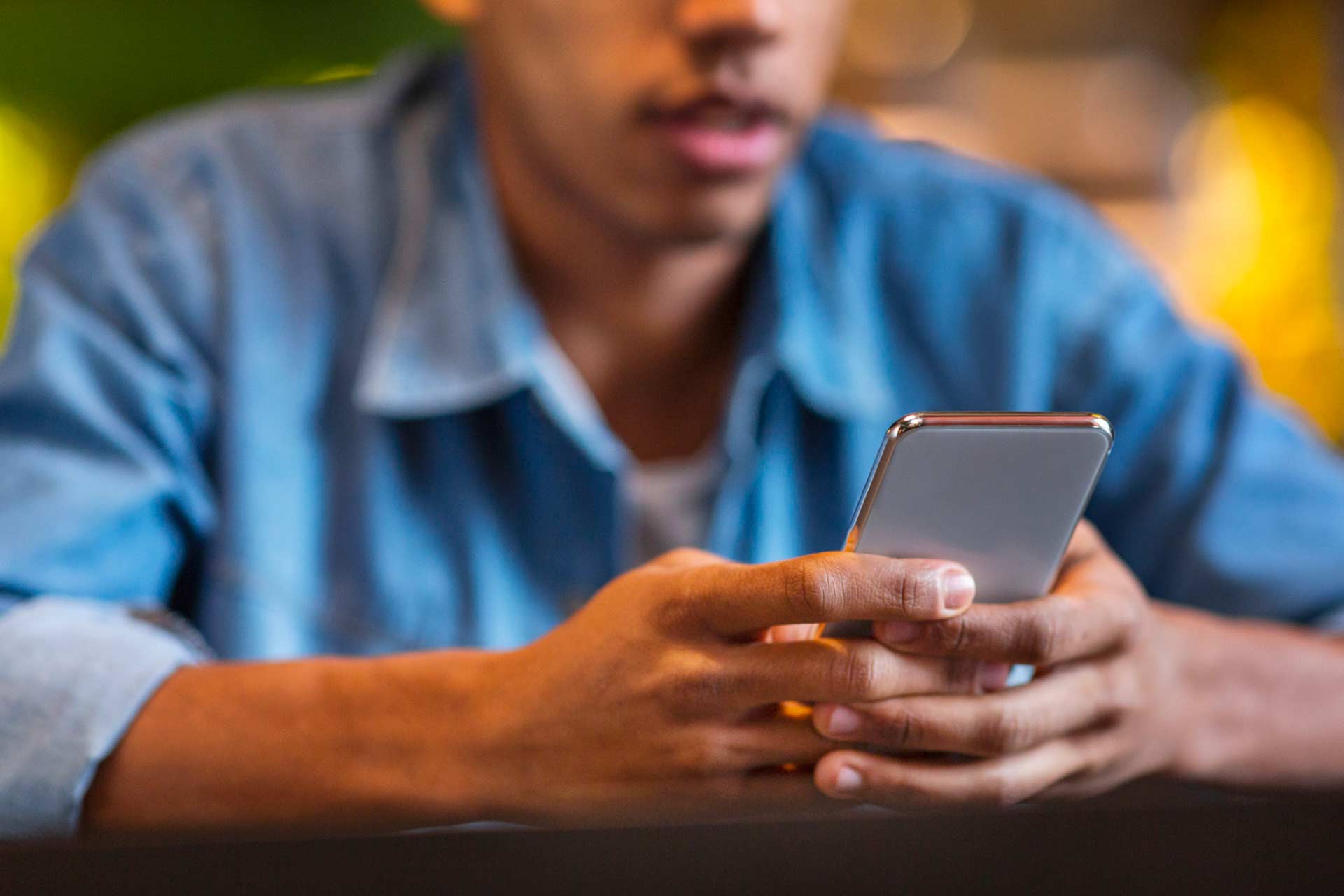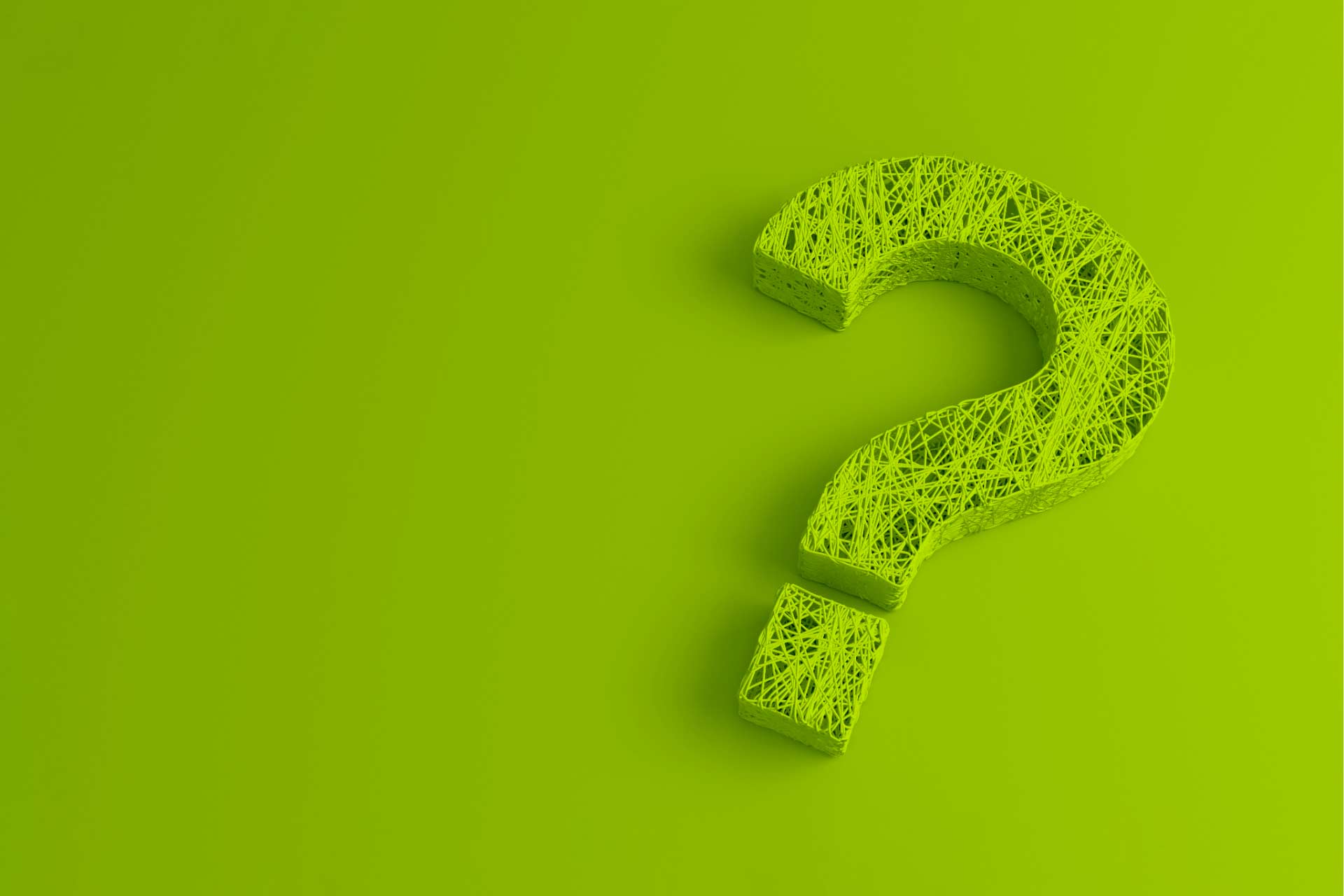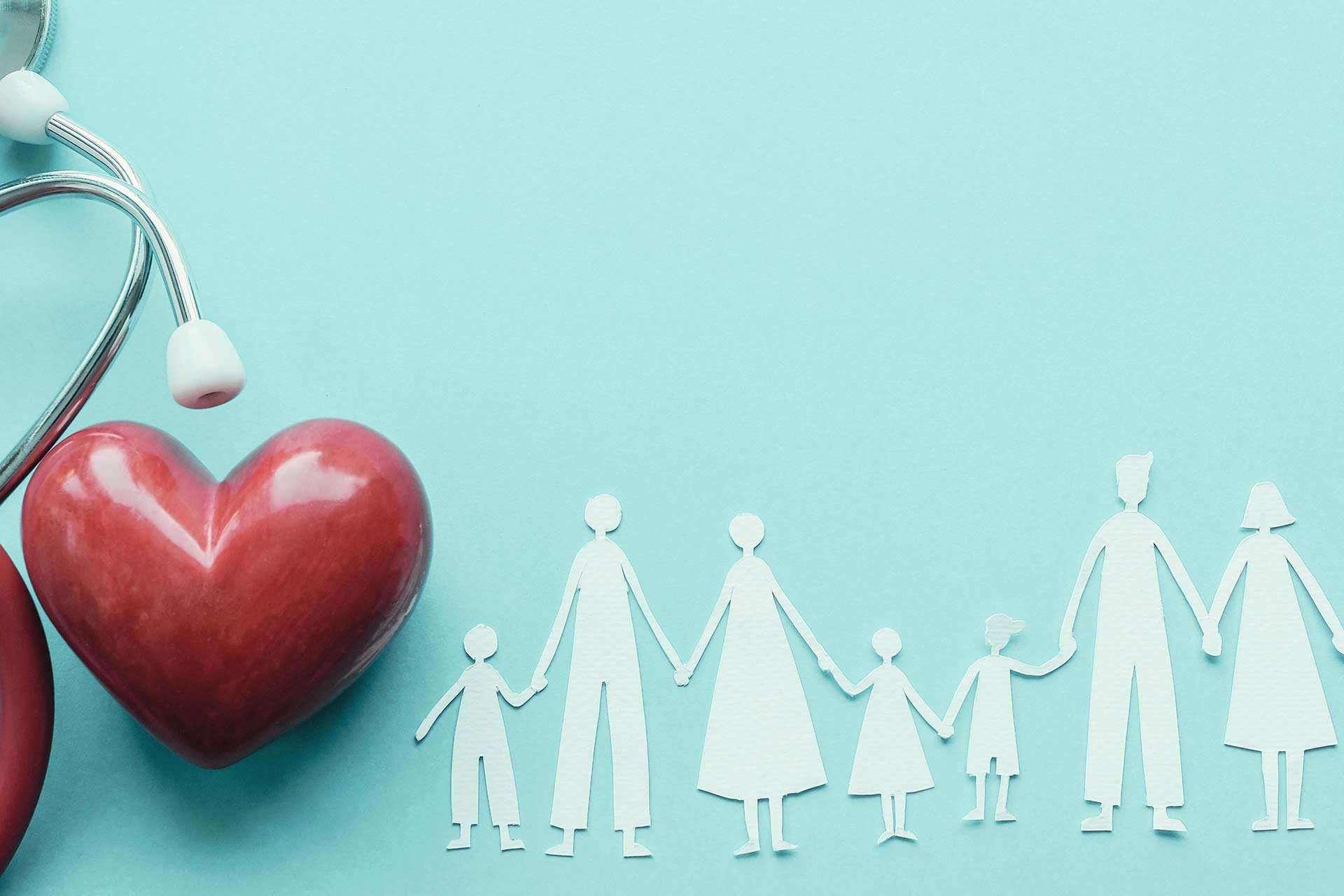Understanding the Role of Cannabis-Trained RNs
Learn about the cannabis guidance our Leaf RNs provide
Medically reviewed by Whittney Wacker, RN, Katherine Golden, RN, and Eloise Theisen, NP
Written by Denise Rustning
Leaf411’s fully-licensed Leaf Nurse Network are experts in general nursing as well as in using cannabis as a therapeutic tool. When talking with our nurses, you’ll discover they offer an incredible wealth of knowledge on cannabis, as well as deep nursing knowledge on a variety of medical conditions, health and wellness.
And as fully-licensed registered nurses (RNs), our nurses are always careful to stay within their professional scope of practice when providing information and guidance.
We know that most people are not familiar with nursing scope of practice, so today we’re sharing some examples of the types of information that our Leaf nurses can and cannot provide.
Our fully-licensed, cannabis-trained Leaf RNs can provide the following types of guidance:
- General guidance on all things cannabis, including different cannabinoids (THC, CBD, CBN, etc.), terpenes and how to use different product formulations. All guidance from the Leaf411 nurses is derived from evidence-based information and education.
- Information about specific products on the legal market, including both products made by our supporting members as well as non-members.
- Safety considerations based on your overall health and lifestyle. For example, if someone is struggling with COPD or other lung conditions, our nurses may suggest edibles or tinctures instead of inhalation.
- Potential interactions with other medications you are taking. Keep in mind that while the nurses can identify potential interactions, they cannot make specific recommendations for changing your medication dosing–only your prescribing clinician can do that.
- Starting dose ranges for different product types based on your past experience using cannabis and hemp, as well as your overall goals for using plant-based medicine.
- Guidance on using cannabis to support optimal functionality of your endocannabinoid system.
- Information and resources for you to share with your medical team.
This list is just the tip of the iceberg when it comes to the practice standards that guide our Leaf nurses. For a more in-depth understanding, we recommend checking out the NCSBN National Nursing Guidelines for Medical Marijuana, available for download at this link .
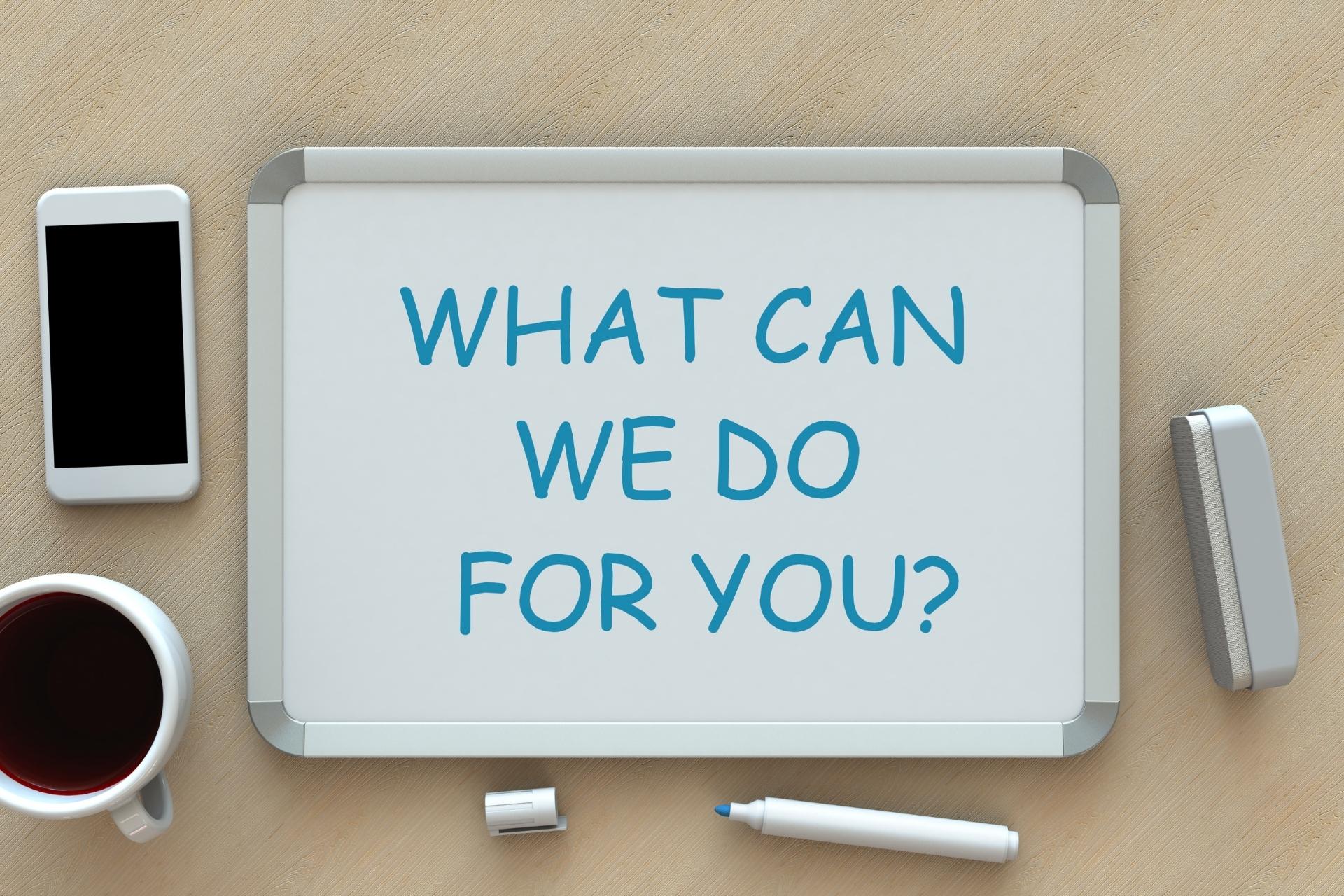
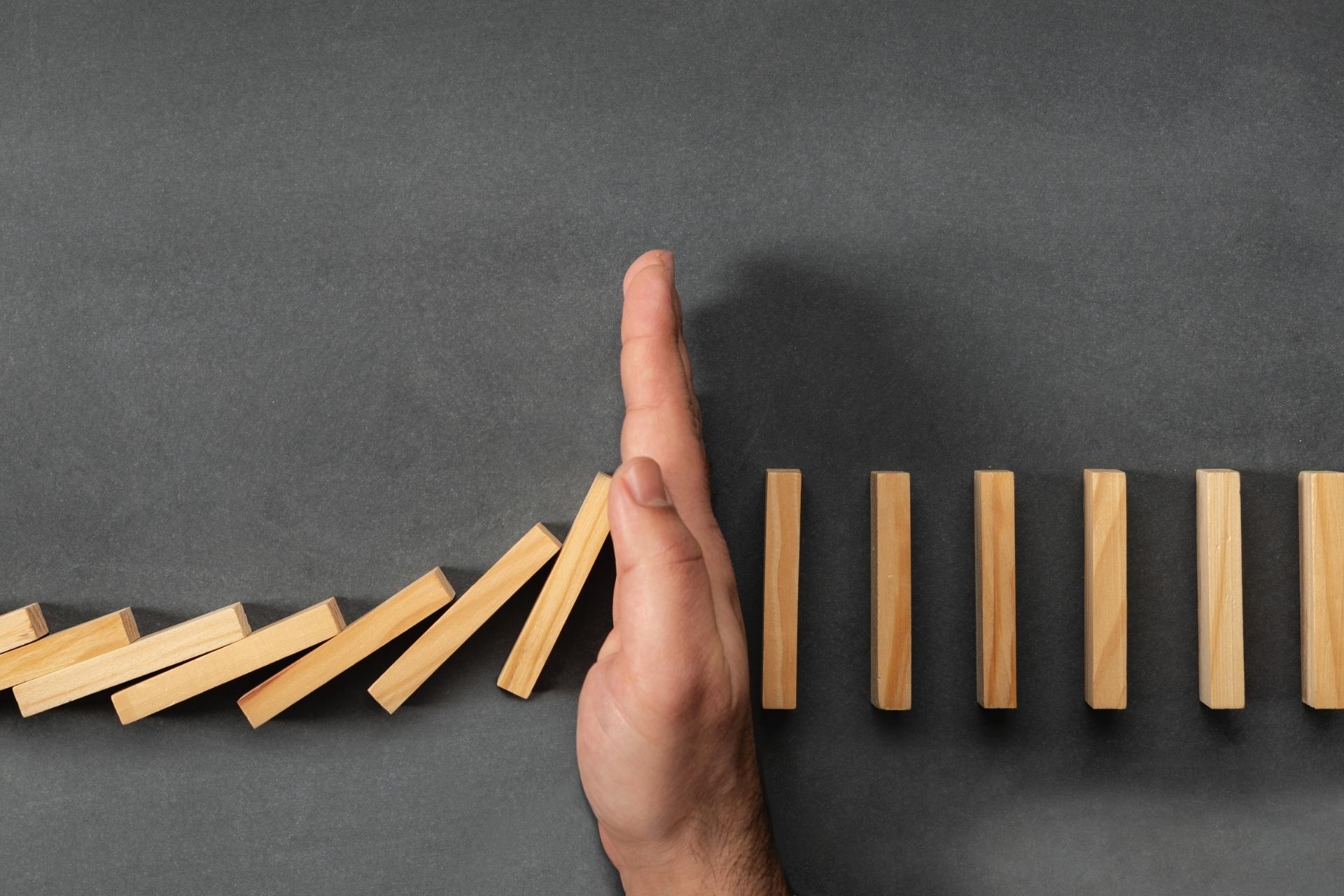
Our Leaf nurses can help with most questions. However, there are a few areas that fall outside of the nurses’ scope of practice as registered nurses. Following are some types of information our nurses cannot provide:
- Our nurses cannot provide specific dosing for cannabis products. Providing a specific dose, or amount, is akin to prescribing a medication, and only a medical doctor or advanced practice registered nurse–nurse practitioner (NP) with prescribing privileges can do that. However, our RNs can suggest ranges and provide guidance on how to titrate your dose up or down.
- Our nurses cannot recommend starting or stopping medications.
- Our nurses cannot diagnose a medical condition.
- Our nurses cannot order tests or interpret test results.
- Our nurses cannot make final decisions about care or treatments.
Who do you go to for help with more complex questions or issues? At Leaf411, we have an extensive network of clinician peers (doctors and nurse practitioners) with advanced training on cannabis who we can recommend for more complex issues. Keep in mind that these clinicians are independent from the Leaf411 organization and will have their own fee schedules, with those costs likely not covered by insurance.
Schedule your Leaf nurse consultation today!
Ready to schedule your Leaf nurse consultation? Visit our home page and click “Let’s Talk” to get started. You can also call us at 844-LEAF411 (844-532-3411) if you have questions about our scheduling system.
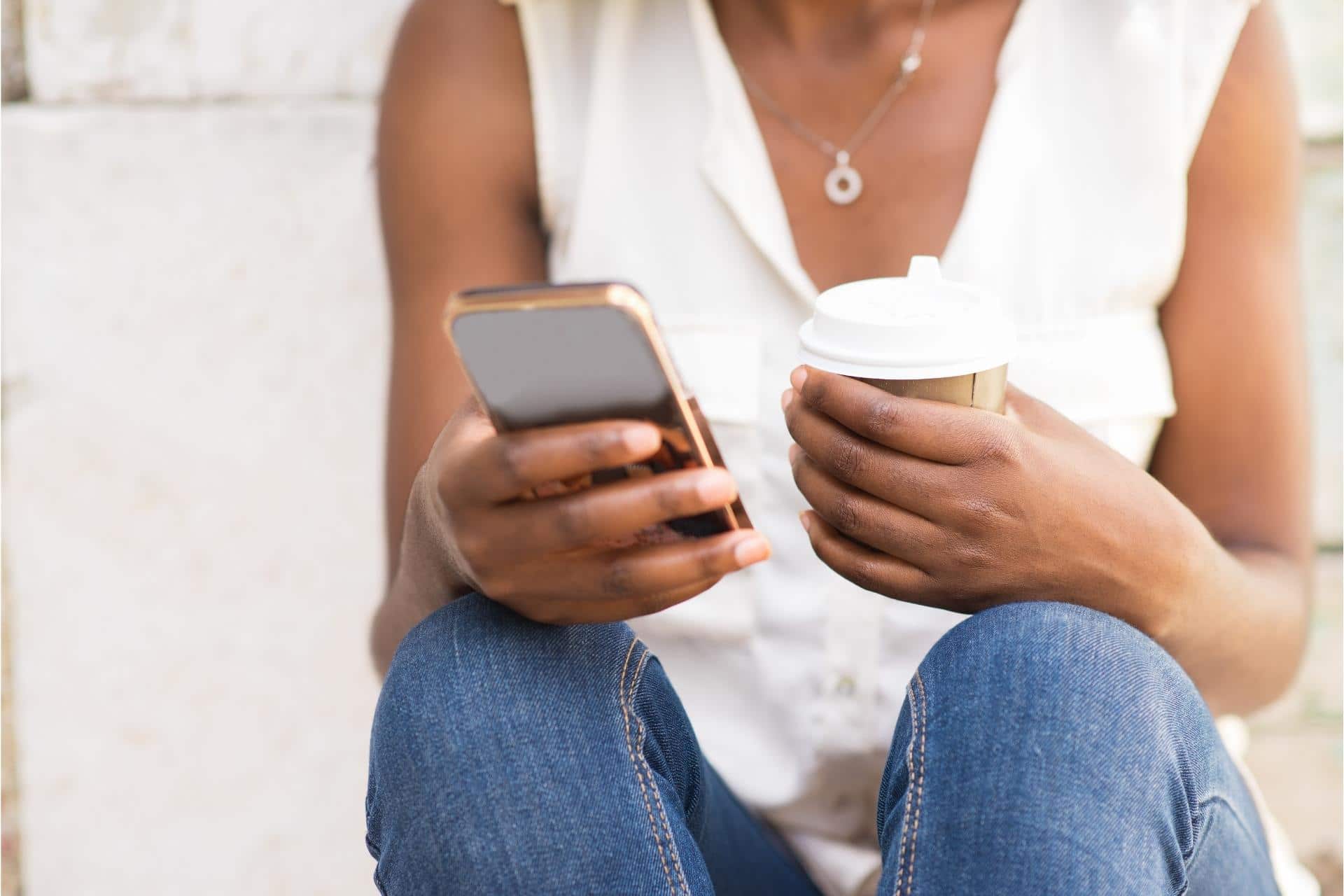
Recognizing Cannabis Nurses During National Nurses Week
Cannabis-trained nurses hold a unique spot in the nursing field
Medically reviewed by Katherine Golden, RN
Written by Denise Rustning
Patients have long known the potential benefits of cannabis, though the medical establishment has been slower to acknowledge cannabis’s therapeutic potential. Between federal prohibition and outdated stigmas, cannabis has faced an uphill battle gaining credibility among many healthcare providers. However, as additional states legalize and research rapidly grows on cannabis’s potential as an alternative to opiates and other pharmaceuticals, more doctors and nurses are giving cannabis a fresh look.
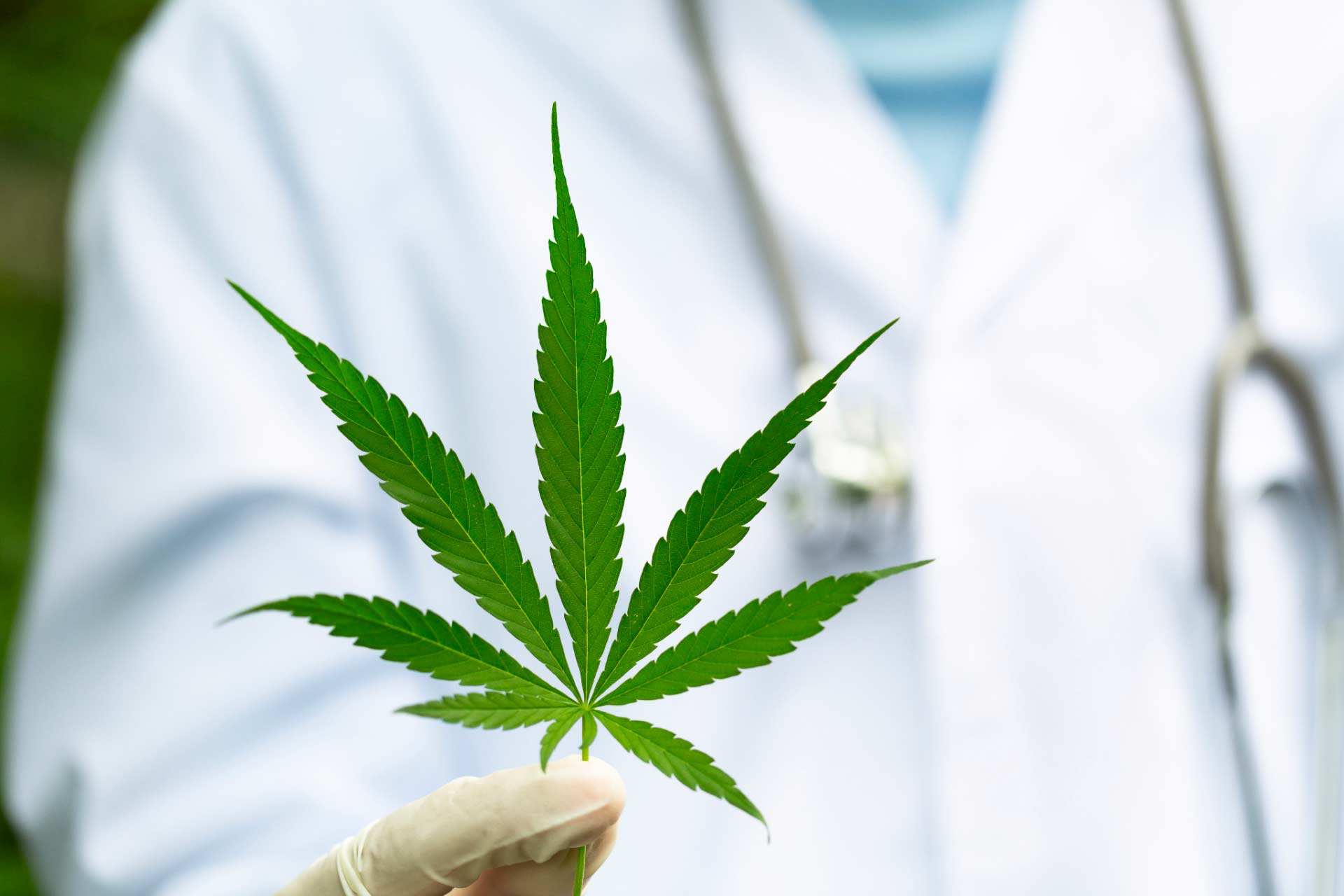
Healthcare pioneers have long supported medical marijuana
Pioneering nurses and doctors have been chipping away at cannabis misconceptions and stigmas for over 50 years. In 1971, Dr. Lester Grinspoon published Reconsidering Marihuana, supporting the safety and efficacy of cannabis. Ironically, when he first began researching cannabis his goal was to prove the plant was dangerous, but the research resoundingly said otherwise. (The late Dr. Lester Grinspoon is the father of Dr. Peter Grinspoon, keynote speaker at our most recent Leaf Learning Series.)
Dr. Lester Grinspoon wasn’t the only healthcare professional interested in cannabis therapeutics prior to legalization. The organization Patients Out of Time was formed in 1981, and the American Cannabis Nurses Association (ACNA) was first envisioned at the Fourth National Patients Out of Time conference in 2006, with ACNA formally founded in 2010. Our own Leaf411 Chief Nursing Officer and Board President Eloise Theisen, AGPCNP-BC, is the current ACNA President, and all our Leaf Nurses are members of this visionary organization.
Unique challenges in cannabis nursing
Nurses have been on the forefront of cannabis therapeutics all along, often with very little professional support and at risk of losing their nursing licenses or jobs. In many cases, these nurses became interested in cannabis after seeing its benefits firsthand in patients they were caring for, or after diving into research on cannabis as an alternative to medications that have worrying side effects.
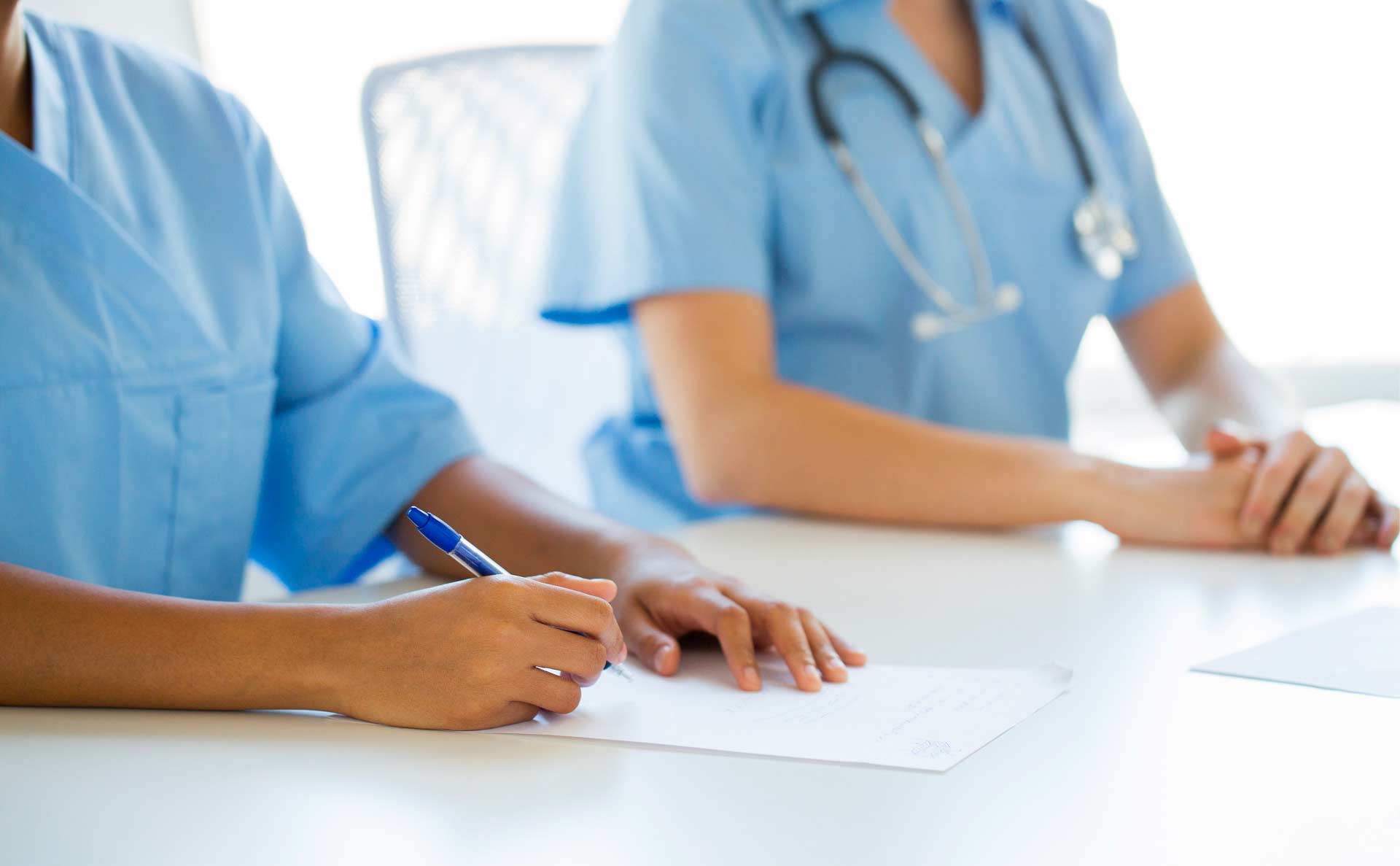
Unlike their nursing colleagues in more conventional specialties, nurses pursuing cannabis specialization have often had to go outside of their organization and spend their own money on professional development. These nurses also miss out on bonuses and incentives that large healthcare organizations often offer for other speciality certifications.
Needless to say, these nurses—including our own Leaf Nurses—are driven by a passion to provide patient-centered care that addresses the whole person and considers all available research-backed options to restore health and quality of life.
Fortunately, when it comes to healthcare the tides are turning. In 2016, the American Nurses Association (ANA) released a position statement in support of cannabis, urging reclassification to allow for more robust clinical research on the efficacy of marijuana and related cannabinoids. Two years later, in 2018, the National Council of State Boards of Nursing (NCSBN) released guidelines for nurses caring for patients who use medical marijuana. Eloise played a central role in developing a nursing continuing education (CE) module for the ANA on this topic, and led creation of a clinical dosing regimen to the cannabis space.
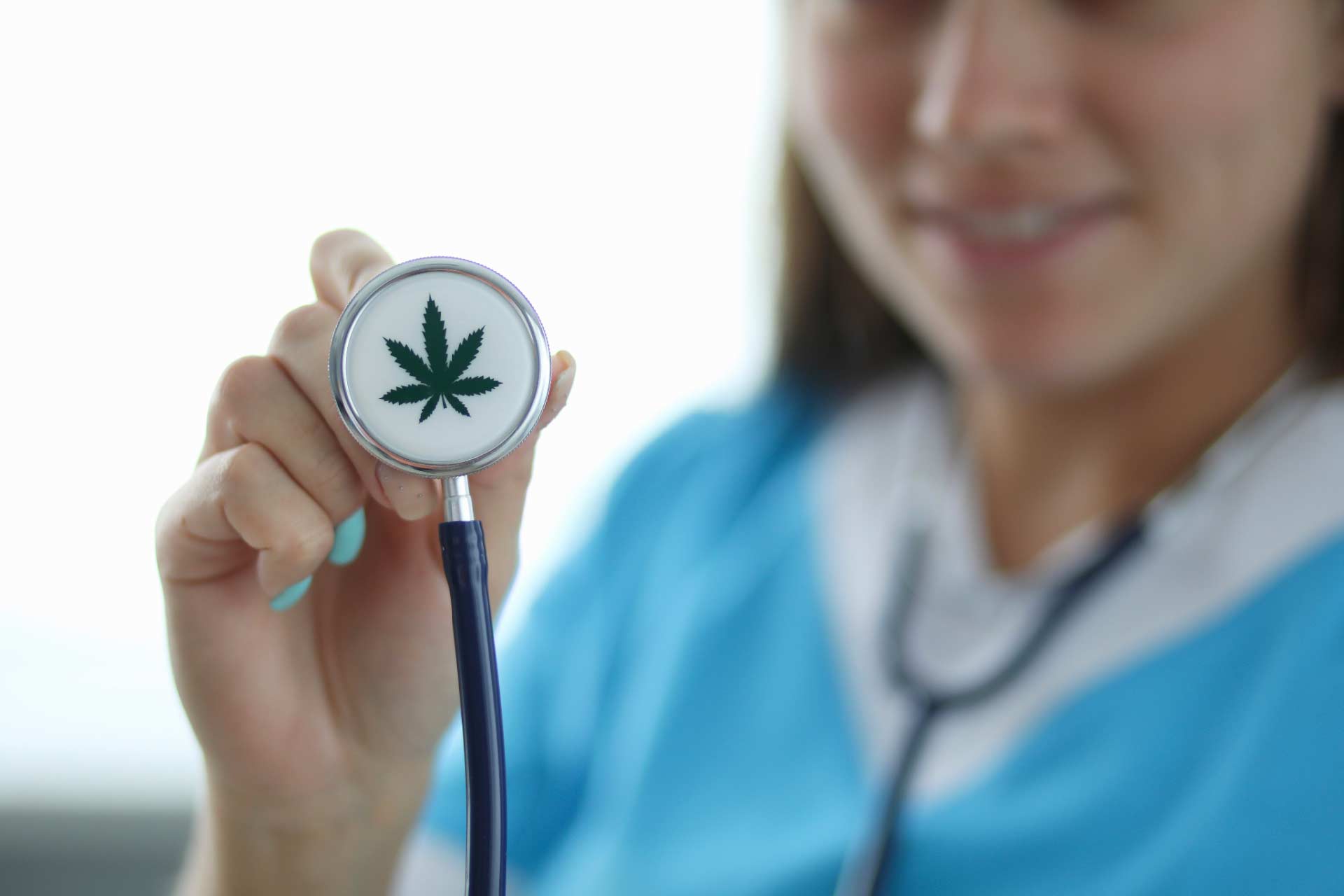
Cannabis nurses offer knowledge in an emerging field
For now, cannabis nurses like the Leaf411 Nurses who staff our hotline hold a unique place in healthcare. More people are accessing plant medicine, yet many mainstream medical providers don’t have the necessary background or professional education to answer patients’ questions about cannabis therapeutics. Cannabis-trained nurses help fill that gap.
At Leaf411, we’ve seen the demand on our hotline, with calls increasing by 50% during the first two months of 2021, and we only expect that demand to increase as more states legalize medical and adult-use (recreational) cannabis. Public support for cannabis is also at an all-time high, with 91% of U.S. adults saying medical and/or adult-use cannabis should be legalized, according to a Pew Research Center report released in April 2021.

Access to legal cannabis is expanding and attitudes are changing, but patient resources remain scarce. We launched the nonprofit Leaf411 hotline with the goal of providing balanced, accessible cannabis information to the public while also paying our fully-licensed Leaf Nurses a fair market rate, acknowledging the time and resources they have invested into pursuing a cannabis specialization.
We help patients and consumers cut through marketing claims and anecdotal data to find cannabis and hemp CBD product types and potencies that fit their goals, lifestyles and overall health regimen. We are not beholden to one brand, but instead help consumers sort through the options where they live, whether in a fully legal state, medical-only state, or even an area where cannabis has not been legalized yet hemp CBD is available.
During National Nurses Week, we want to acknowledge our Leaf Nurses’ commitment to making the Leaf411 hotline a leading resource for cannabis patients and consumers. To the best of our knowledge, we are the only RN-staffed cannabis hotline in the United States that provides this service for free to the public, and we couldn’t do it without the incredible passion and dedication that our nurses bring to their work.
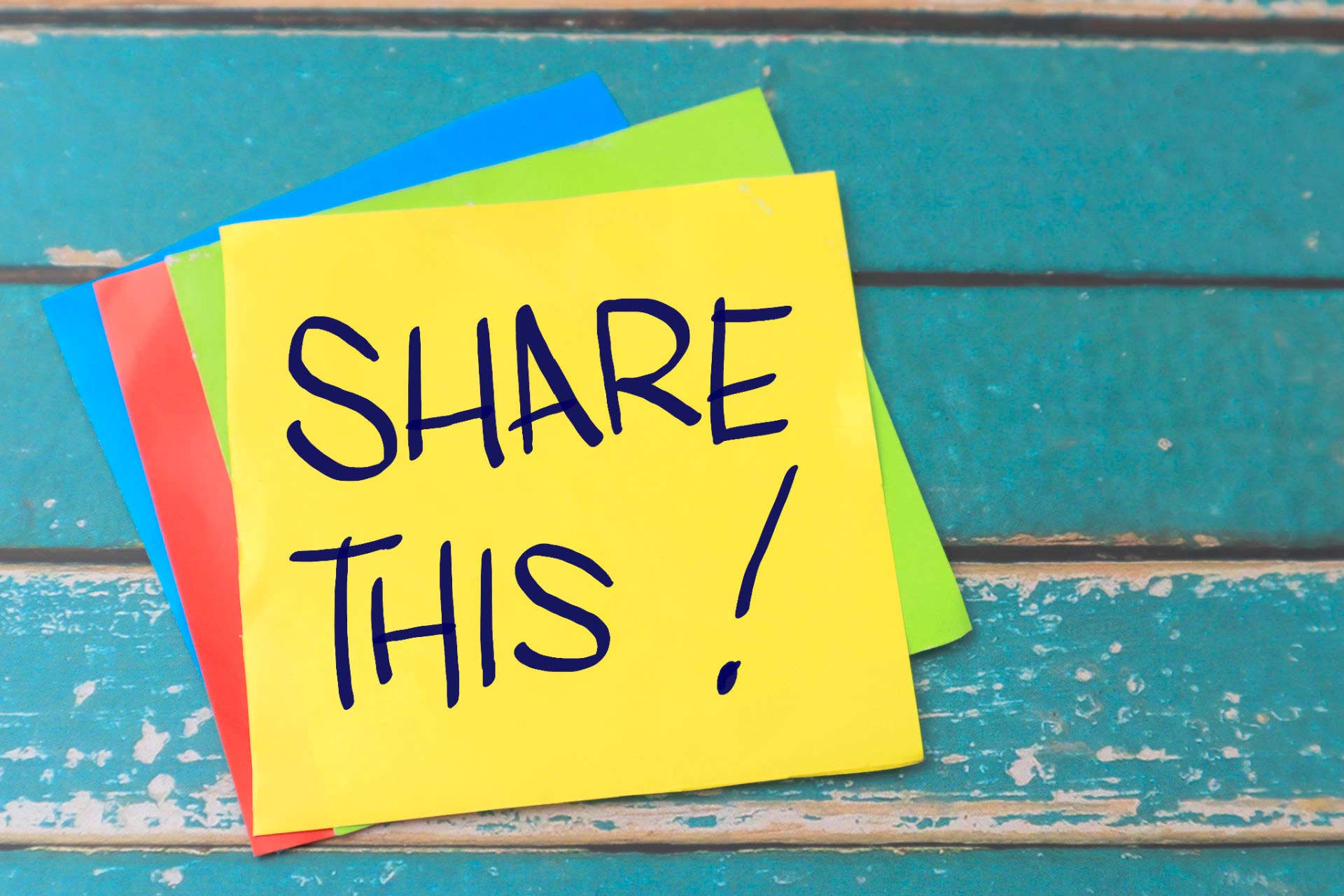
Spread the word about Leaf411 and help us grow!
One of the best ways you can support Leaf411 is by spreading the word about our service:
- Have a friend with questions about cannabis? Point them in our direction.
- Visiting your favorite dispensary for your cannabis medicine? Mention how Leaf411 has helped you, and suggest that they look into a business membership to help support patients like yourself.
- Know a physician, nurse or other allied health professional with questions about cannabis therapeutics? Point them to us—we also serve as a resource for healthcare professionals.
We also appreciate individual donations, no matter how big or small. Visit this link to learn different ways you can support Leaf411’s work via direct donation or Amazon Smile.
For cannabis businesses, a Leaf411 business membership provides a valuable educational resource for your customers while also demonstrating that you care about healthcare inequality. Leaf411 business membership can also set you apart in the increasingly crowded cannabis and hemp CBD marketplace, an issue we tackled in a recent blog post.
We have revamped our business membership model to meet you where you’re at, whether you are a newly-launched brand or an industry heavyweight looking to make your mark on the future of patient-centered cannabis education and support. Keep an eye on our Business Membership page for more details, and be sure to sign up for our newsletter below!
The Cannabis Industry Needs Nurses
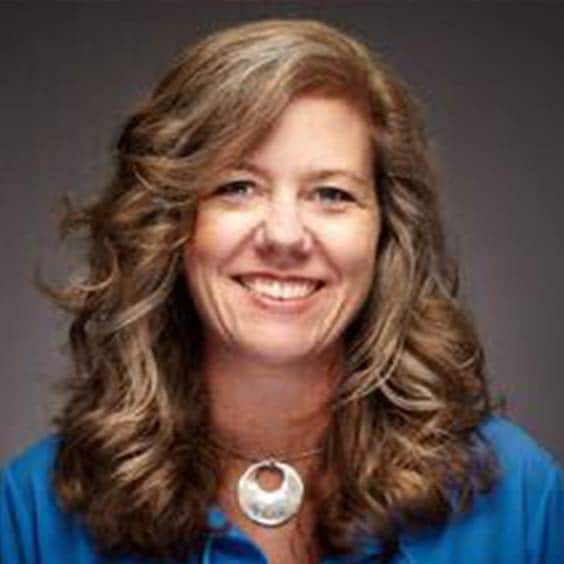
By Eloise Theisen, AGPCNP-BC
CEO, Radicle Health
Executive Board Member, Leaf411
(Note: This article was originally published on the RadicleHealth blog.)
The cannabis industry (and particularly the hemp space) has been gaining momentum. Last year was a monumental year for cannabis legislation. With 36 states and the District of Columbia allowing some form of medical cannabis, 15 states plus D.C. allowing adult use, and the descheduling of hemp, it is safe to say that cannabinoid therapy is here to stay.
It is estimated that there are around 3,000 CBD companies in the United States alone. Many of those companies are not expected to survive, with COVID-19 playing a significant role in their demise. According to Hemp Industry Daily, the top 20 hemp CBD companies account for 17% of the market share. The rest of the market is made of new CBD enthusiasts who are not well-established brands, and they are finding it harder to survive in the crowded space.
Cannabis companies like Acreage, Tilray, Aurora, Canopy, Cresco Labs, GW Pharmaceuticals, and Tikun Olam are hoping to position themselves as leaders in the cannabis space. These companies have multistate operations in medical and adult-use states. More states are predicted to put cannabis legalization on the ballot in 2021 and there is talk of federal decriminalization happening by 2022. As these national brands expand, they too will need to consider unique ways to positions themselves among the competition.
So how do brands establish brand loyalty and secure a piece of the market? A leading data analyst and consulting company speculated that survival will depend on brand differentiation. Companies can position themselves by increasing distribution through multistate operators, aligning with well-established nutraceutical companies, and working with large retail chains. What else can they do to establish brand differentiation? They can hire a nurse.
As the market becomes more competitive, brands will need to be creative about offering services that help them stand out. Nurses are an excellent way for brands to craft credibility, brand differentiation, and brand loyalty.
For 19 years in a row, consumers have voted nurses as the most trusted profession. Beyond gaining the public’s trust and respect, nurses are educators, counselors, leaders, and advocates. Nurses promote health and wellness, interpret patient information, conduct research, and improve practices and patient outcomes. And yet nurses are rarely employed by cannabis companies.
Nurses can bring incredible value to cannabis companies. In addition to offering instant credibility, they can collect data, identify trends, provide training and education, and coach patients through the medical cannabis process. Cannabis companies: what are you waiting for? We need more nurses in the industry.
Eloise Theisen (CEO, Radicle Health) is a board-certified Adult Geriatric Nurse Practitioner with over 20 years experience in nursing. Prior to cannabis, Eloise worked for 14 years in oncology at John Muir. Eloise started her own cannabis practice in 2015 and has treated over 7000 patients using cannabis. Eloise is the current President of the American Cannabis Nurses Association and an Executive Board Member for Leaf411.
References
Nichols K. Chart: 2020 an ‘extinction event’ for thousands of CBD companies, but industry remains crowded. Hemp Industry Daily. https://hempindustrydaily.com/chart-2020-an-extinction-event-for-thousands-of-cbd-companies-but-industry-remains-crowded/. Published August 3, 2020. Accessed February 25, 2021.
Skelly C. Top CBD Companies. https://blog.brightfieldgroup.com/top-5-cbd-companies. Accessed February 25, 2021. Skelly C. Top CBD Companies.
Leaf411 Spotlight: Natali Murdock, BSN, RN, Cannabis Nurse Educator
Throughout 2021, we will be profiling board members, hotline nurses, administrative team members and industry partners who are integral to the work we do every day.
While these individuals have diverse professional and personal backgrounds, they all share a passion for supporting medically-sound patient education and resources on cannabis.
In these profiles, you will find reassurance and inspiration. You might also see elements of your own cannabis journey in these stories.
Below, we’re sharing Natali’s story, in her own words, about her evolution from hospital-based nursing to working as a cannabis nurse educator. Natali is a Leaf411 Advisory Board Member and is also a fierce advocate for individuals with disabilities to have access to therapeutic alternatives.
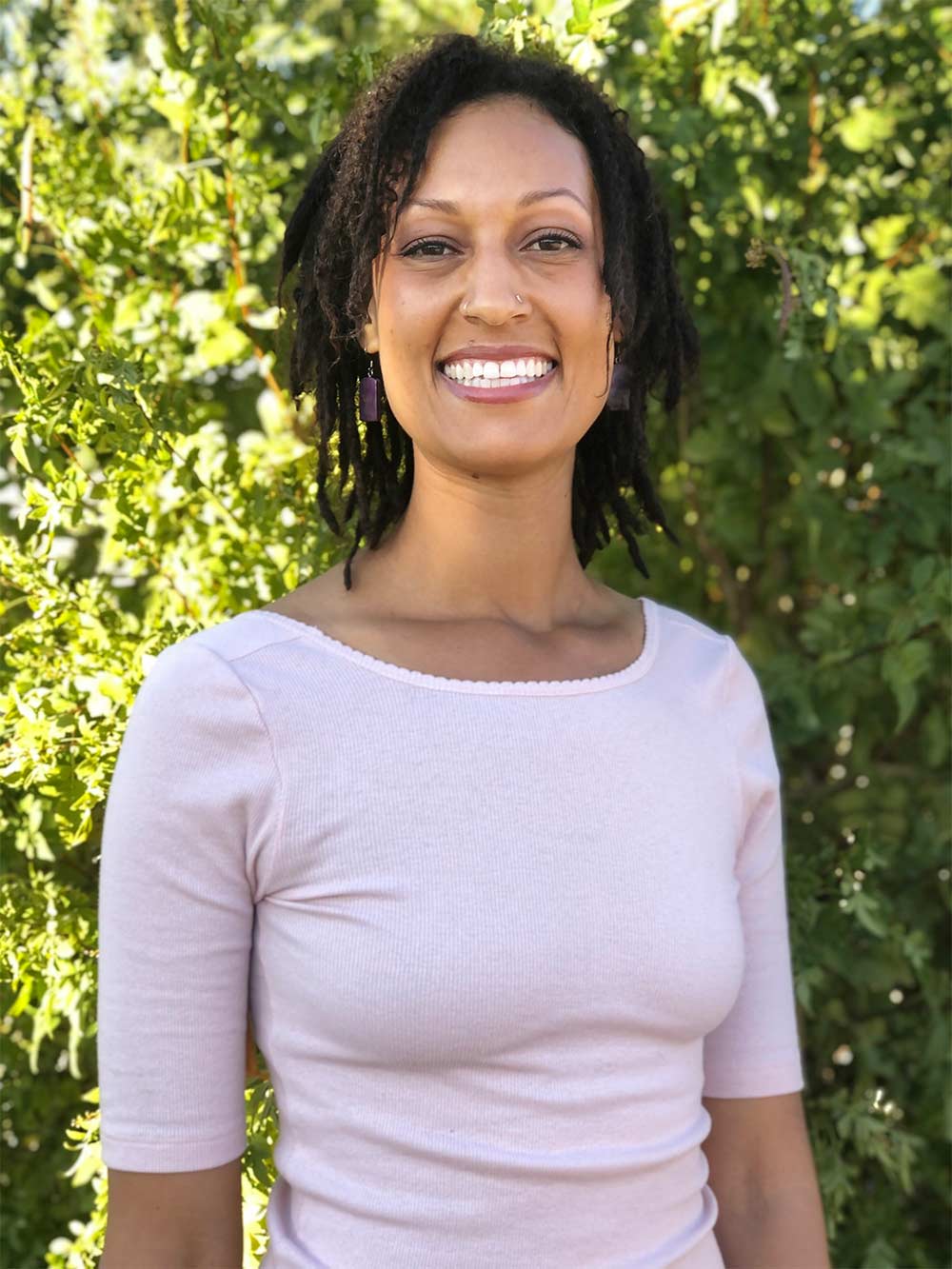
“The different stories I have heard from patients’ family members, specifically parents of children with disabilities have been profound. It has made me believe that cannabis should be a first line treatment and not a last line treatment. Oftentimes parents use cannabis as a last resort and it ends up being the best medicine they have ever used. This has driven my passion to be part of Leaf411 and help educate the public and dispel the misinformation surrounding marijuana use.”
Natali Murdock, BSN, RN, Cannabis Nurse Educator
The Importance of Maintaining a Healthy Balance
I received my Bachelor of Science in Nursing (BSN) while playing college volleyball, becoming the first student-athlete to graduate from my nursing program. Balancing volleyball and nursing school made me aware of the importance of maintaining healthy practices such as exercise, healthy eating and prioritizing mental health. To this day, I rely on these tools in my own life and see how life-changing they can be for my patients, as well.
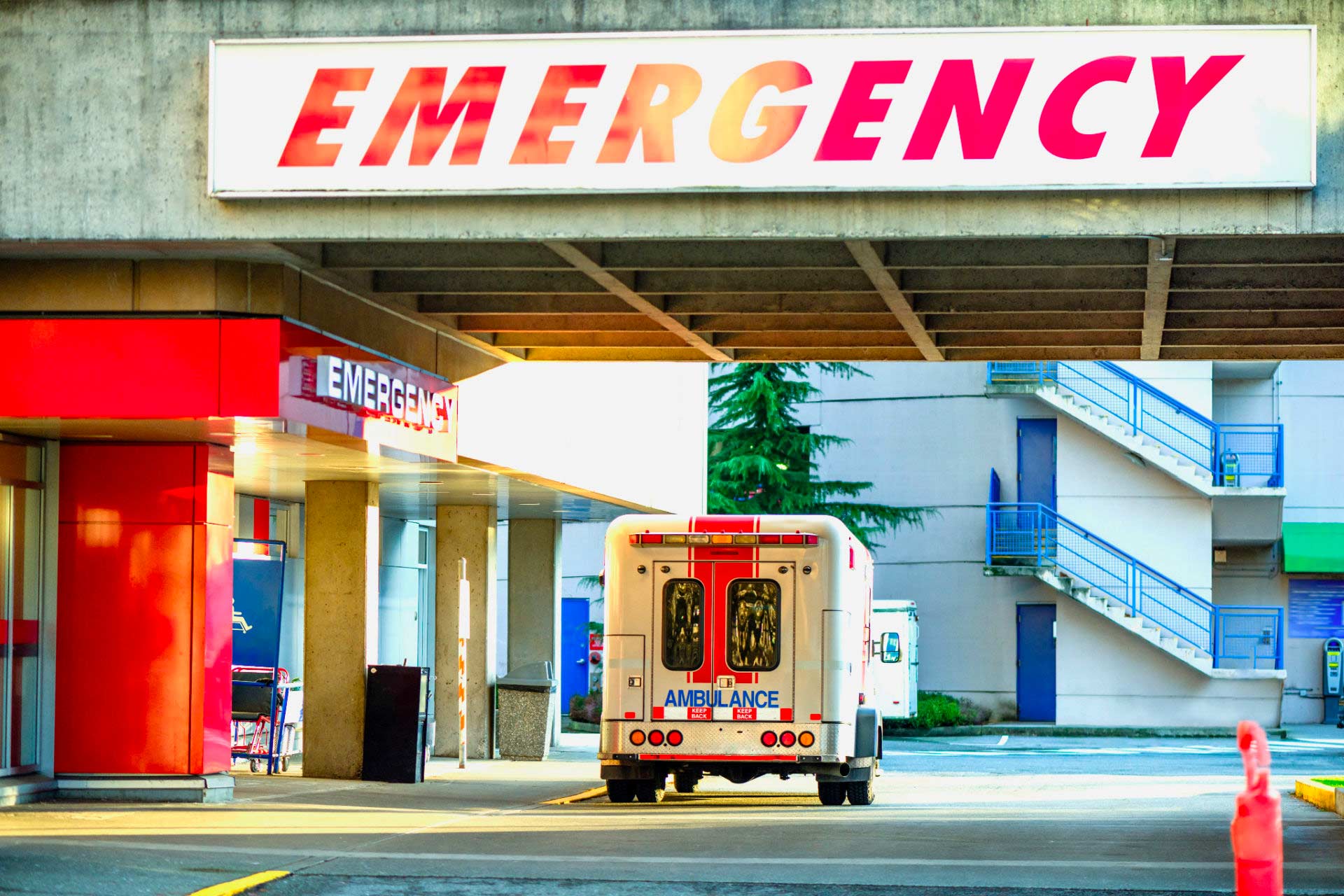
Emergency Department Patient Stories about the Benefits of Cannabis
I have been a registered nurse for 10 years. I originally started my nursing career in a rural hospital on the medical/surgical floor. After a couple of years, I transitioned to the emergency department, where I began hearing from patients who were using cannabis to help manage their health conditions.
When triaging patients there is a section about drug use. If a patient told me that they used marijuana, I would ask what they were using it for. Patients would usually start telling me how it helped with their medical condition. Oftentimes the condition they mentioned would qualify them to become medical marijuana patients. However, large hospitals depend on federal funding. As long as cannabis remains federally illegal, medical professionals are discouraged or outright restricted from recommending medical marijuana.
I then moved to Colorado and worked in various emergency departments throughout the Denver area. I surprisingly found that a lot of patients with various chronic issues did not try or use cannabis medicinally despite being in a legal state. In many cases, this was due to patients’ lack of awareness and education around plant-based medicine. Patients did not know that an alternative was available to them.
I eventually became burnt out from working in emergency nursing. I wanted to help patients in a more natural way as I got to witness the terrible side effects patients had from medication, alcohol, drug abuse and how treating mental health seemed to be failing.
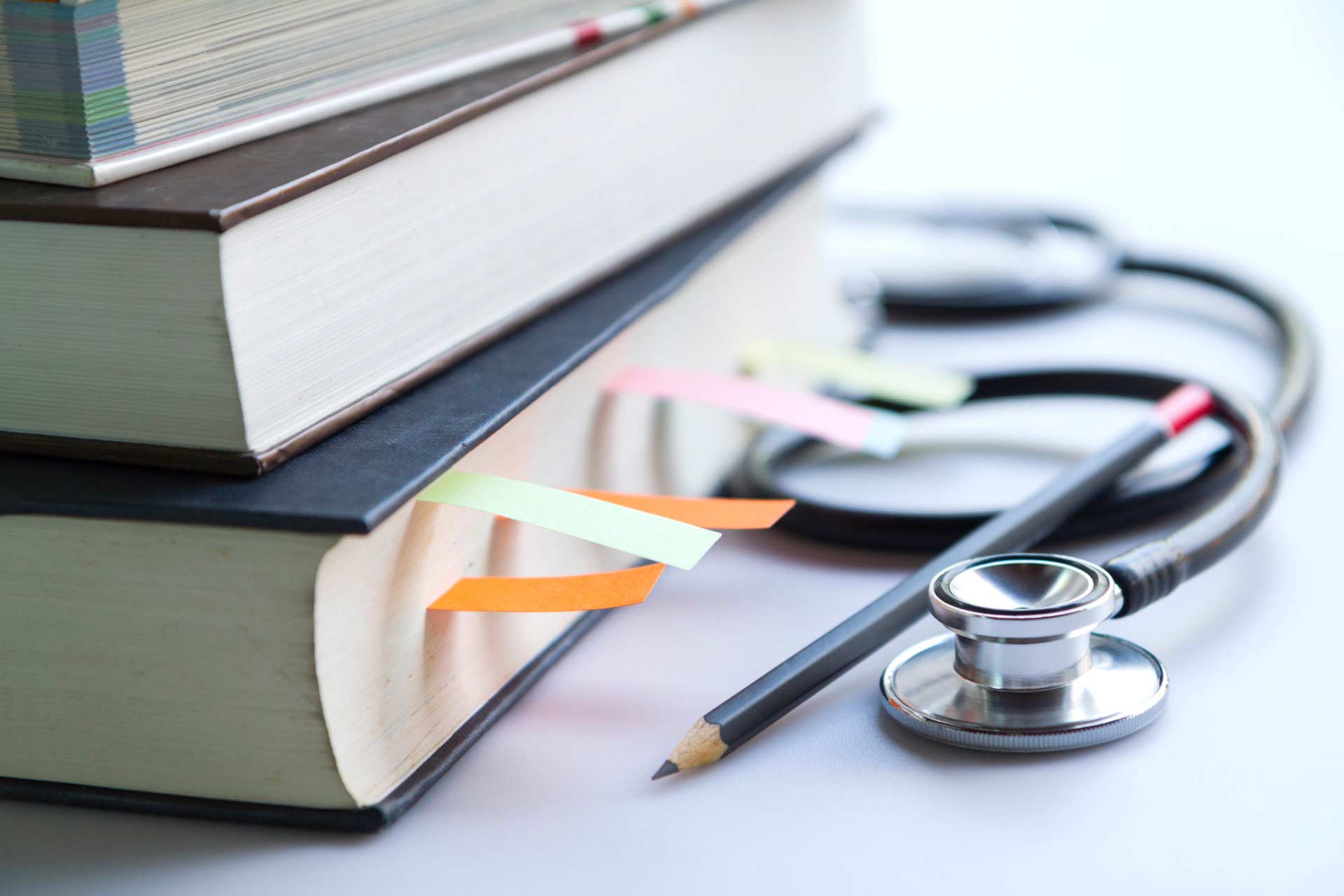
Transitioning into Cannabis Nursing
After I left hospital nursing, I started working in a Medical Marijuana evaluation office in Boulder, Colorado. I quickly gained knowledge about the endocannabinoid system, different uses for cannabis, dosing and products. I also learned a lot from various physicians, cannabis-trained nurses, conferences and literature.
Working as a cannabis nurse, I felt empowered to finally be able to answer any questions patients had about medical marijuana use, side effects, drug interactions, etc. My new role was a far cry from my old position working in hospitals, where information and resources on medical marijuana were sparse or nonexistent.
I now live in Arizona, where I remain dedicated to providing balanced education and guidance on safe, effective use of cannabis medicine. The different stories I have heard from patients’ family members, specifically parents of children with disabilities have been profound. It has made me believe that cannabis should be a first-line treatment and not the last-line treatment.
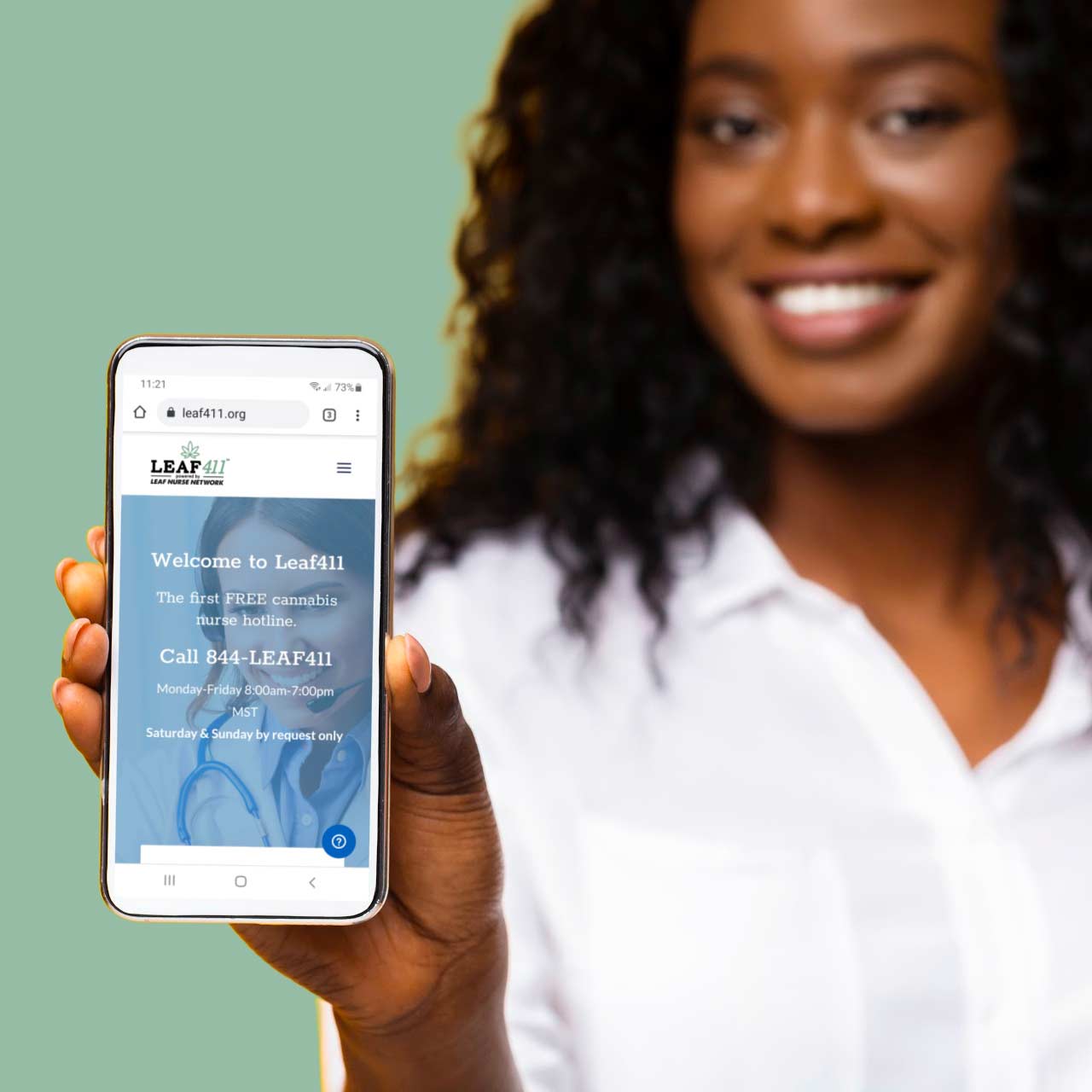
When You Call Leaf411, You Get Expert Help on Cannabis… For Free!
We appreciate the work that Natali and the rest of our staff do every day to bring medically sound, balanced education and guidance to you—the public—at no cost!
When you call the hotline, you can be confident that your questions and concerns will be taken seriously, and that you will be treated with respect. Our nurses are passionate about helping others on their cannabis journey, no matter where they are at. You can even call if you’ve never tried cannabis before but are curious about whether it might be an option for you or a loved one.
Call our hotline at 844-LEAF411 (844-532-3411) with your questions, or chat us from our home page during hotline hours, Monday-Friday from 9:00 a.m. to 7:00 p.m.
The Leaf411 cannabis nurse hotline provides free, anonymous education and directional support to the general public about the safe use of legal cannabis. We partner with select business members who meet our rigorous standards to extend our education and outreach efforts.
Leaf411 Year in Review and Predictions for 2021
Reviewed by Katherine Golden, RN
Written by Denise Rustning
As the year wraps up, we’re sharing highlights from Leaf411’s first full year in operation, along with our plans and predictions for 2021. While we talk a lot about the Leaf411 hotline, it’s only one of several programs our organization is undertaking to improve access to no-cost medically-sound information on legal cannabis and CBD hemp products!
The need for balanced, unbiased cannabis information is greater than ever, with additional states voting for medical and adult-use (recreational) legalization in the 2020 election. As a result, one in three Americans now lives in a state where adult-use cannabis is already legal or will be legal soon.
Answering Your Cannabis Questions on Our Free RN Hotline
Our Leaf411 hotline launched in October 2019, with the online chat option going live in January 2020. During the hotline’s first full year of operation, we received calls from almost all 50 states as well as several other countries! Who’s calling? It’s a mix of patients, new and experienced cannabis consumers, as well as clinical professionals seeking to expand their own knowledge to better serve their patients.
With more states legalizing cannabis, we anticipate that demand will rapidly grow for medically-sound, science-based guidance on cannabis and CBD hemp use.
Moving into 2021, our biggest challenge is securing increased funding to hire additional Leaf RNs for the hotline. If you’re a cannabis business interested in supporting consumers’ access to free, unbiased information and resources, we encourage you to visit our business membership page. Individuals can also support our mission by donating at this link.
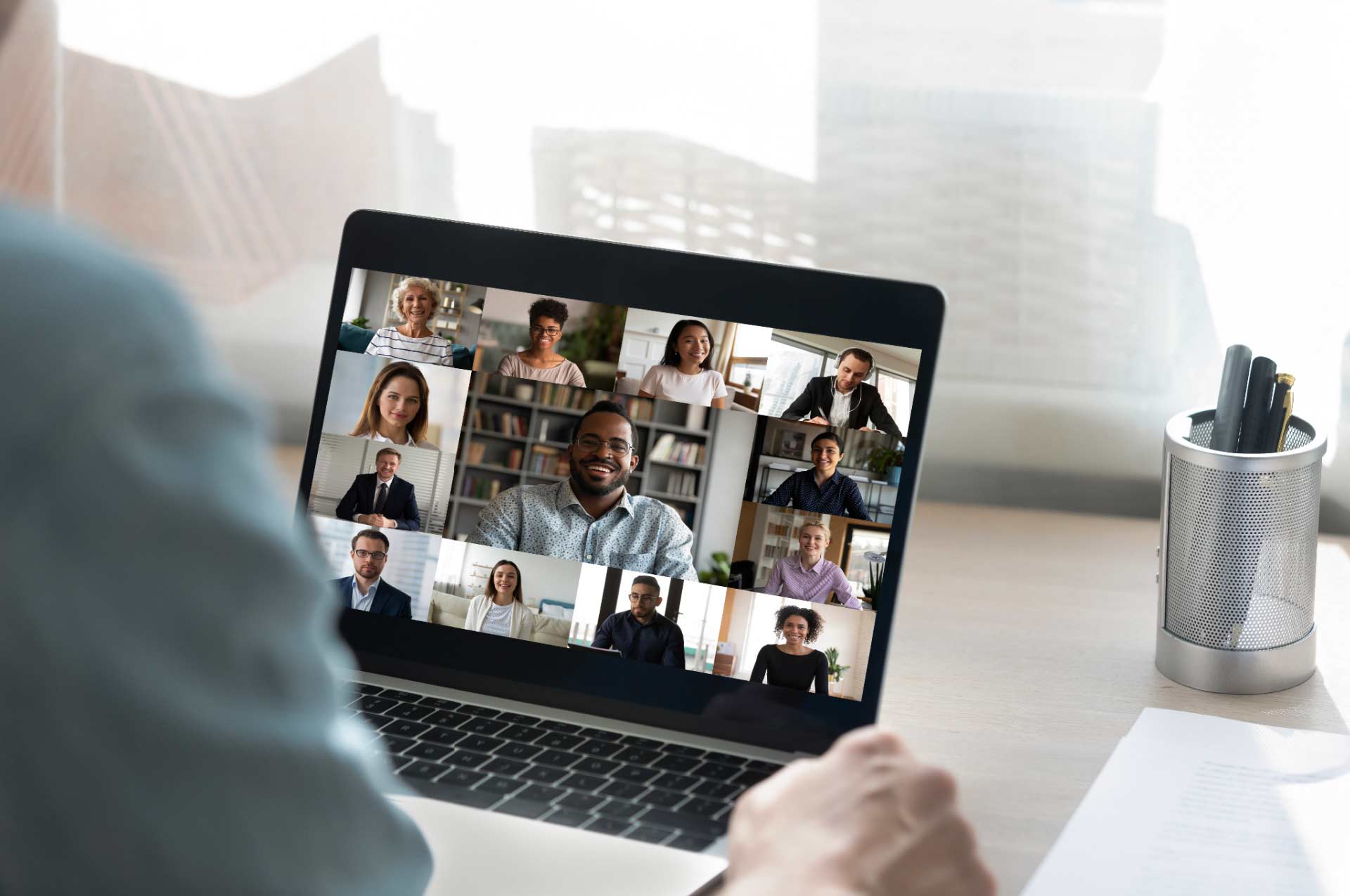
Cannabis Community Outreach Goes Virtual
From the beginning, we envisioned Leaf411 as a boots-on-the-ground organization, with our nurses meeting people where they are at both figuratively and literally, whether that’s at a senior living center, community event or dispensary.
Of course, the pandemic changed those plans. Like many other organizations, we pivoted to virtual learning events designed to engage and encourage audience questions and conversation. In August 2020, we held our inaugural Leaf Learning Series: “Get the 411 on Cannabis Therapeutics” event, followed by our “Supporting Veterans” event in November 2020, which featured Veteran-led cannabis advocacy groups as well as many of our supporting members.
In 2020, Leaf411 also participated in numerous national events either as panel participants or nonprofit exhibitors, including the Whole Plant Expo, Women in Plant Medicine Summit, MJBizCon Next, Emerge Winter Cannabis Conference, and I Heart 420 Living Room Lovefest held on April 20, 2020.
In the near-term, virtual events remain the default as we work within pandemic restrictions. Our next Leaf Learning Series event in Spring 2021 will be geared toward older adults and cannabis—keep an eye on our social media and newsletter for more details! Not signed up for the newsletter yet? You’ll find the signup form at the bottom of this page.
We are also expanding outreach through our podcast series co-hosted by Leaf411 Co-Founder and COO Jennifer Axcell and podcaster Steve McMorrow. Jennifer and Steve recently sat down with Veterans to talk about cannabis and healing. You can find these insightful, inspiring podcast episodes on Buzzsprout or Spotify.
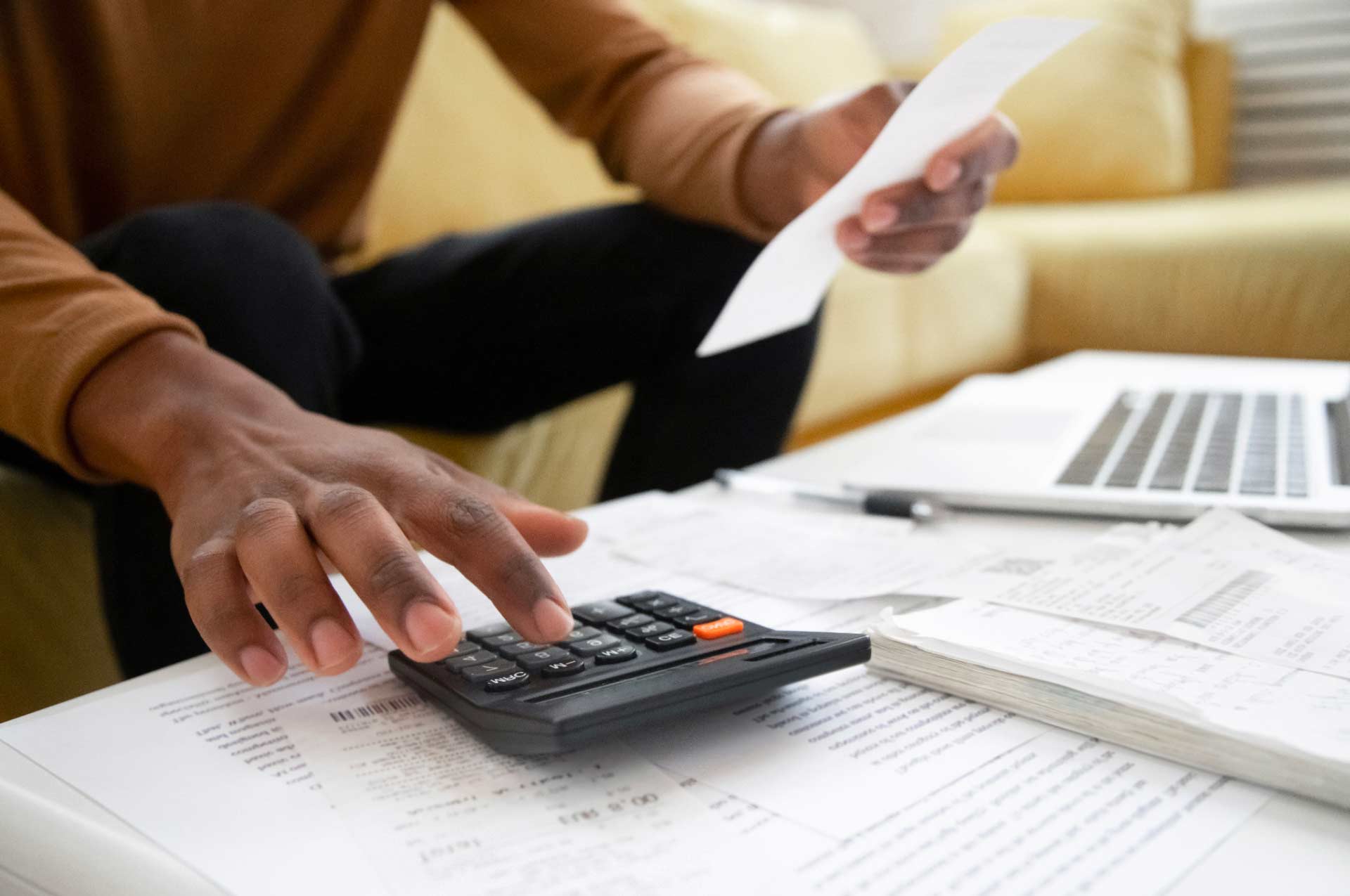
Cannabis Compassion: Making Cannabis Affordable for Patients in Need
In 2020, we launched our Affordability Program to connect low-income patients, families and Veterans with fully-vetted free or low-cost legal cannabis and CBD hemp products. These products are donated by cannabis and CBD hemp manufacturers, with marijuana products distributed via legal dispensaries, and CBD hemp products distributed by a designated pick-up location or mail. The Affordability Program also offers scholarships to qualifying patients who cannot afford medical marijuana evaluations. So far this year, the Affordability Program has served approximately 200 patients.
Americans for Safe Access signed on to the effort as a program partner in November 2020, recognizing that the high cost of cannabis is a barrier for many patients. If you’re a patient advocate or industry member who’d like to lend your support, we encourage you to visit our Affordability Program page to learn more.
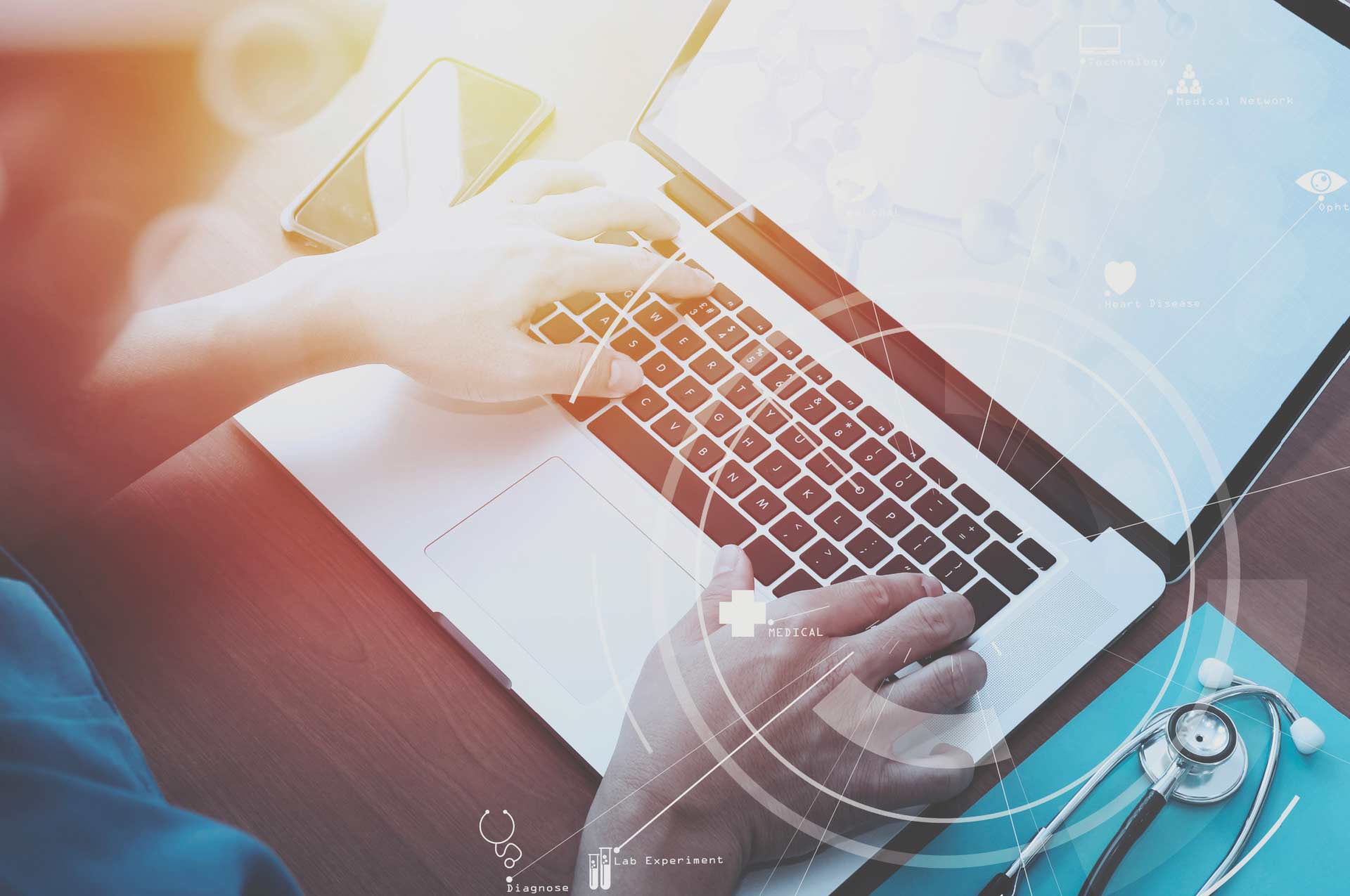
Building the Leaf Nurse Network in 2021
From the very first day, one of our priorities at Leaf411 was to build clinical professionals’ capacity for providing accurate, balanced information to diverse patient communities. In 2020, we began laying the groundwork through our collaboration with Radicle Health, inviting Radicle Health founder Eloise Theisen, RN, to join our Executive Board as the Leaf Nurse Network Program Chair.
We also knew that in order to meaningfully serve diverse communities, we needed to engage diverse partners in Leaf Nurse Network program development. We are excited to collaborate with Cannabis in Colour, a professional development resource and intentional community for BIPOC in the cannabis and hemp sectors, as we continue building the Leaf Nurse Network.
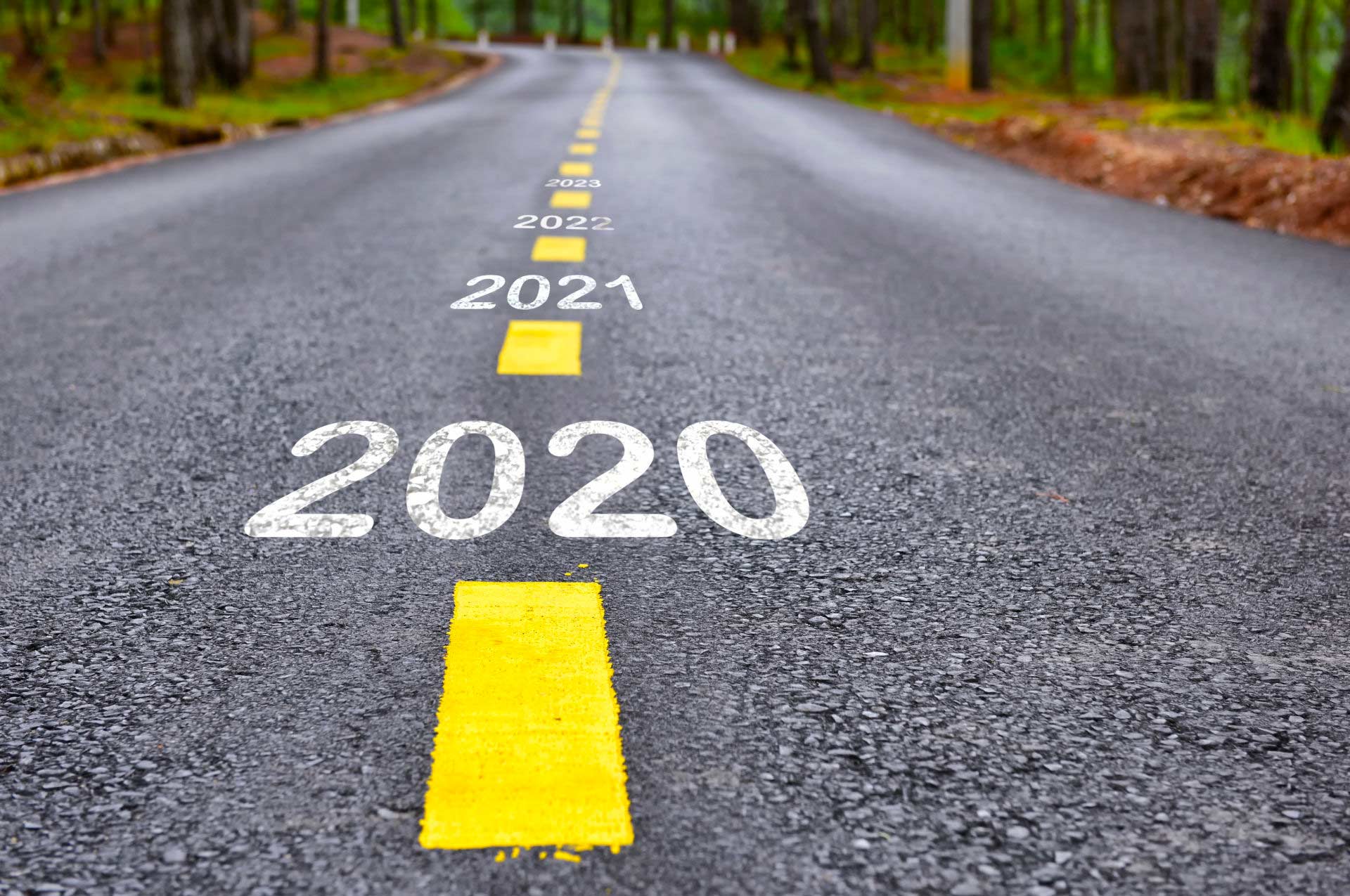
Growing Our Leaf411 Business Membership
Our industry supporters expanded, literally from coast to coast! We welcomed West Coast supporters CAASI CBD (Oregon), Care by Design (California) and A Therapeutic Alternative dispensary (California), along with East Coast supporter Takoma Wellness Center dispensary (Washington DC).
We also welcomed many great Colorado cannabis and CBD businesses–check out our Member Directory to find a full list of our fully-vetted supporting members!
We can’t thank our industry members enough for their support, which powers everything we do at Leaf411. We encourage you to keep these businesses in mind when shopping for legal marijuana or CBD hemp products.

Cannabis is Expanding in Higher Education
Beyond our walls, cannabis continues expanding into higher education (no pun intended!), further establishing the industry as a professional field within its own right.
Our own Co-Founder and CEO/ED, Katherine Golden, RN, will be presenting a noncredit workshop in March 2021 at the Community College of Denver. The workshop is part of a preview series for CCD’s Associates and Bachelors in Cannabis degree program that launches in Fall 2021. Other workshop presenters include Dr. Dave Gordon from 4 Pillars Health & Wellness, along with representatives from LivWell dispensary. Be sure to sign up for our newsletter to learn more details on these offerings, once available.
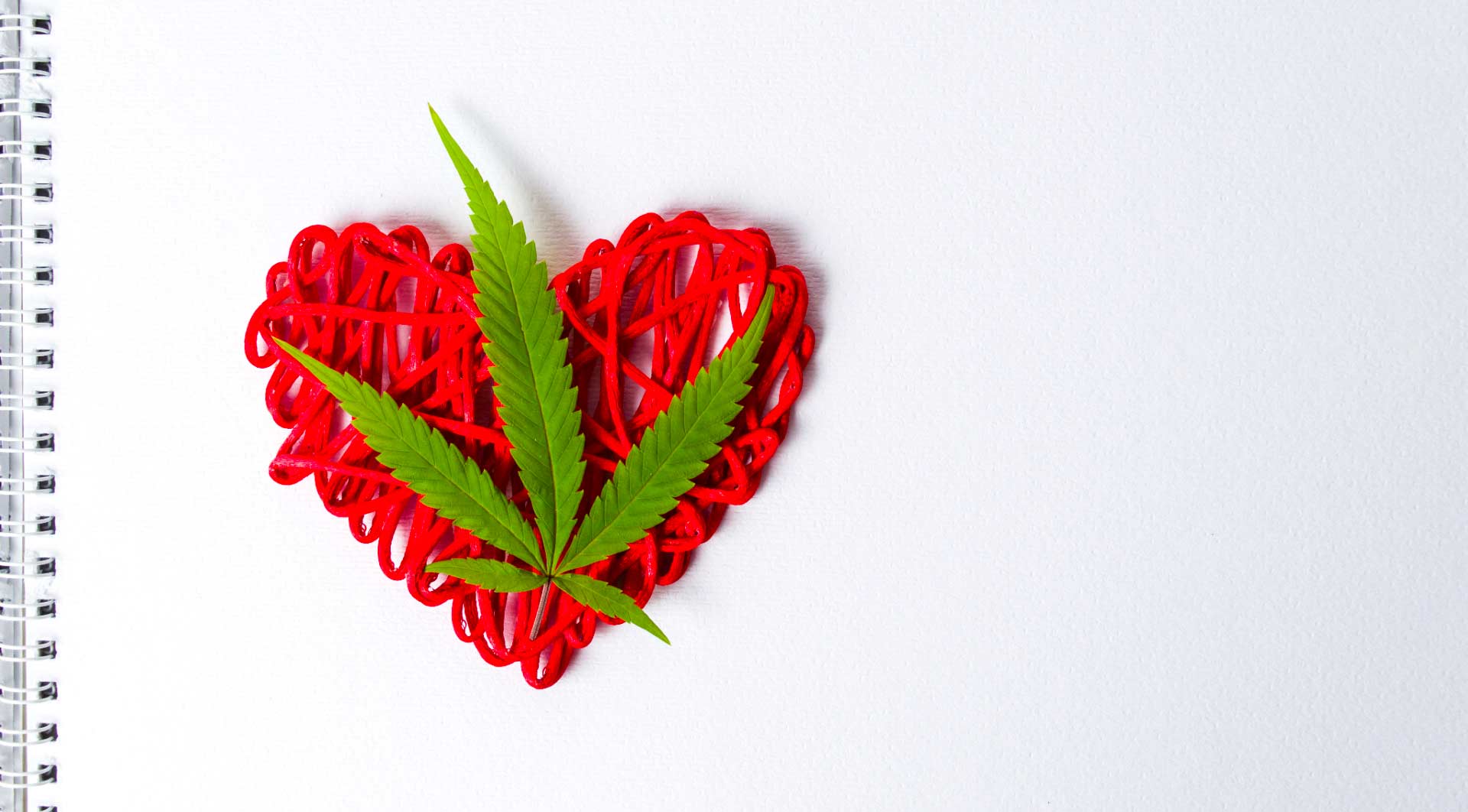
Help Our Nonprofit Cannabis Organization Grow in 2021!
We look forward to continued expansion in 2021, but we cannot do it without you! Please donate to our nonprofit Leaf411 organization if you’re able to, follow us on Facebook, Instagram, and Twitter, and help us spread the word about the services that Leaf411 provides for patients, consumers, clinicians and industry partners.
Patient-Powered Medication: One Leaf RN’s Personal Story of Cannabis and Healing
Note from Leaf411 Co-Founder and CEO/ED Katherine Golden, RN: I am incredibly appreciative and humbled by this powerful story shared by one of our hotline nurses. Many of us at Leaf411 have our own firsthand experiences with healing through CBD hemp or marijuana, or have seen how cannabis has helped family members, friends, and hotline callers across the country. Remember that the Leaf411 hotline is here for you, no matter where you’re at on your cannabis journey!
Hi, I’m one of the Leaf RNs that staff the Leaf411 hotline. If you listened to the CPR “On Something” podcast episode featuring Leaf411, you know my history within the cannabis industry. However, what you did not hear in that podcast was my personal journey with cannabis as a medicine and how it has helped me manage multiple mental health diagnoses of OCD, dyslexia, anxiety, depression and PTSD.

Looking back, my early childhood was relatively normal. I was born the youngest of three kids in a middle upper-class family in the Midwest. I was a gymnast, basketball and baseball player who had high hopes of becoming a veterinarian.
But the train fell off the tracks when I was 9 years old, and then again when I was a teen and in my late 20s.
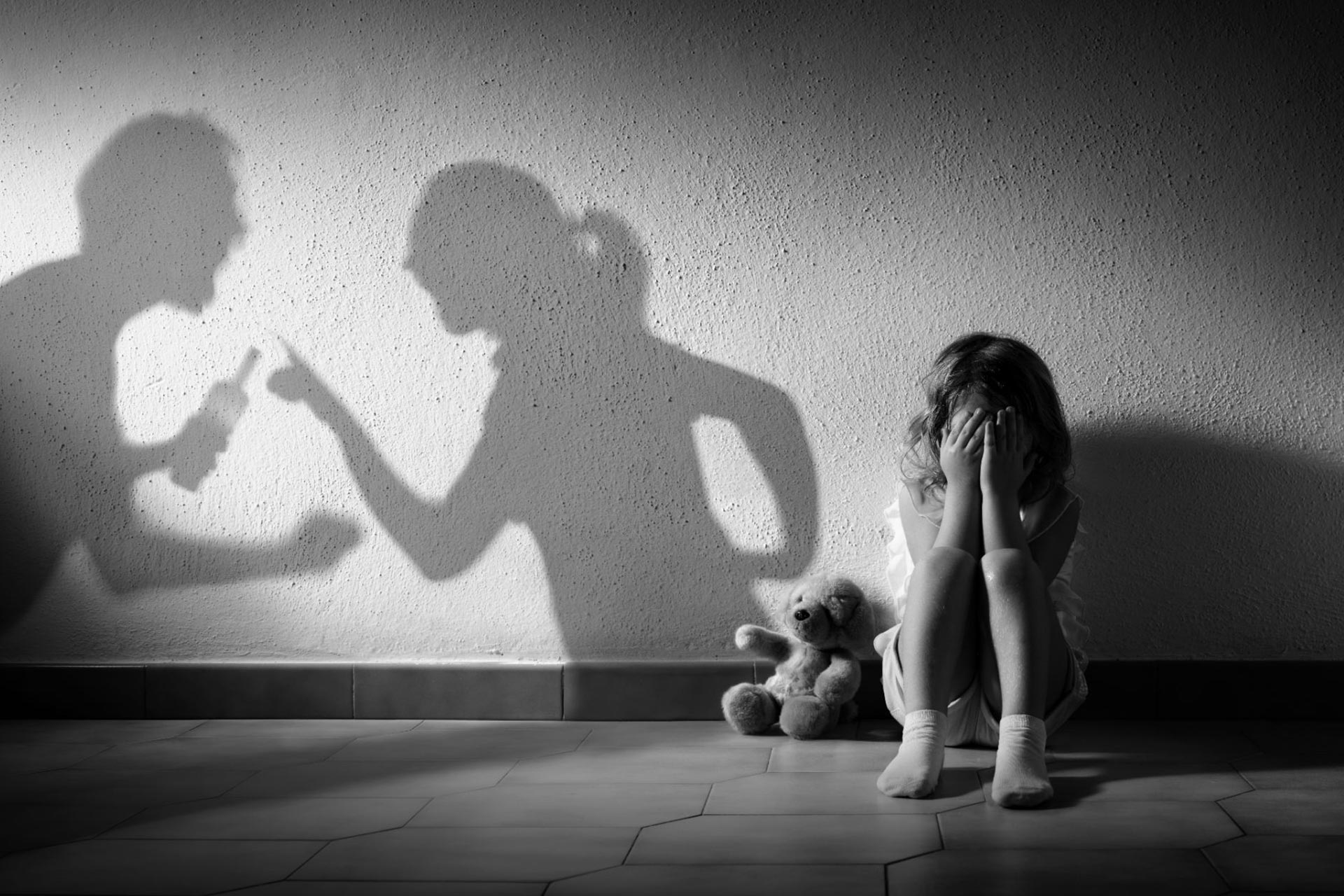
My parents divorced when I was 9. It was a rough time for our family, with a lot of drama. I was separated from them and moved to Oak Ridge Military Academy at the age of 12. At the end of the school year, I moved back in with my Mom in North Carolina, and was diagnosed with OCD, dyslexia, anxiety and depression. At this point in my life, I was started on Prozac and Zoloft. I was told this would help, end of story, but all the medication did was make me feel numb, like a zombie.
I smoked weed for the first time shortly after starting antidepressants, and THAT actually helped! The first time I smoked, I finally felt like myself. Granted, I was 13 so I really didn’t know what “feeling” I was searching for. But when I was high, there wasn’t a sense of doom or gloom hanging over my head. I didn’t feel like I had done something wrong and for those four glorious hours, my brain was quiet from intrusive, repeating thoughts. However, cannabis was totally illegal in North Carolina at the time. I was putting myself and Mom at so much unrecognized risk! I was told I would never get to smoke weed again and I needed to “get it out of my head” that cannabis “helped” me.

At the age of 15, I was removed from middle school and shipped off to another boarding school in Alabama. I continued taking antidepressants while attending the all-girls boarding school until I was 18, legally old enough to make my own decisions around my medical care. At that point, the doctors offered me antipsychotic medication, saying this would “do the trick.” I was insulted, knowing that I was not psychotic! I was anxious, depressed, and had a brain that liked to play tricks on me with numbers and letters! I refused to take any more medication and completely took myself off all of them. At the age of 18, I was, for the first time in my life, feeling what it was like to be human.
My 20s were sober. I lived in Oklahoma with a very controlling boyfriend who increased my anxiety and depression. I longed for the days of feeling normal again but I couldn’t access cannabis, and I refused to go back on antidepressants.

At the age of 26, I graduated from the University of Central Oklahoma with a degree in Biology and moved to Colorado for a job in the cannabis industry with my brother! Once settled in Colorado, I had fantastic days with no intrusive thoughts, anxiety or depression. I was happy and getting to know my brother again in a beautiful, active state! I loved my job growing cannabis for those who suffered anxiety and depression, just like me. It was a great, fulfilling feeling. I rode this feeling for quite some time.

However, I suffered a setback at the age of 29 when I was raped by a fellow skydiver. After this incident, I was scared of everything: loud noises, things behind me, things touching my back. All I wanted to do was slowly fade into the darkness and be unknown. I quit skydiving and lived in a constant state of fear, wondering if this guy was going to find me and do it all over again. I went to talk to someone and was diagnosed with PTSD. Again, all that was offered were antidepressants or benzodiazepines, like Xanax. I refused because I didn’t want to feel like a zombie again. Instead, I chose cannabis and cognitive behavioral therapy (CBT) to help me heal.

Now, at the age of 37, I am married, living a happy fulfilling life without the use of pharmaceutical medications. Don’t get me wrong, it has been a long journey with many setbacks. It is still a daily struggle to choose happiness over other, easier feelings. However, my battle has been made easier by utilizing the resiliency tools I learned in CBT and surrounding myself with those who understand and support me.
I also love that I have cannabis, a patient-empowered medication, at my disposal to meet my mental health needs, instead of one-size-fits-all medications like Zoloft, Xanax or Prozac. I get to immerse myself in plant medicine and cater it to my needs rather than the needs of someone else, like the pharmaceutical industry or therapist. My current interests lie in terpene content and finding which essential oils from the cannabis plant that work best based on the desired effects. What other medicine gives the consumer that freedom?
***
Have questions about cannabis but not sure who you can trust? Our cannabis-trained Leaf RNs are ready to help at no cost to you! Call our free, anonymous Leaf411 hotline at 844-LEAF411 (844-532-3411), and sign up for our newsletter below to stay up-to-date on what we’re building and who we’re talking to, as well as the future Leaf Learning Series events!
Dr. Ethan Russo: Cannabis Can Be Better Yet
Note: Our Leaf411 Blog periodically shares articles from The Cannigma, a trusted resource for research-backed medical cannabis education and information. We have incredible respect for Dr. Ethan Russo’s work, and hope you find the following Cannigma article to be useful! Also, you can hear from Dr. Russo and many other cannabis health professionals at the Whole Plant Expo. For more information and discounted Leaf411 tickets, visit https://wpe20.co/leaf411
This article was originally published on The Cannigma and appears here with permission.
The cannabis that most people have access to isn’t what it could be. A big part of that is a result of the way the plant has been bred to have high THC levels for the recreational market over the years.
“For the most part, around the world, we’re still dealing with cannabis that is mostly high THC and high myrcene, which is gonna be very sedating, producing what we call colloquially couch lock, where the person feels immobilized,” Dr. Ethan Russo explains on The Cannabis Enigma podcast. “So that might be fine for the person that’s trying to get to sleep, but it’s not at all good for the person that might need to work, or study, and function well in the process, and particularly for chronic pain conditions.”
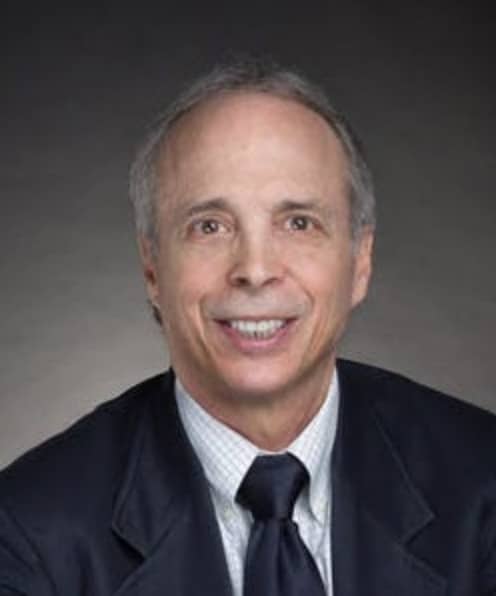
Dr. Ethan Russo
Science has made great advances in identifying what chemical properties of a given cannabis chemovar would be beneficial for various diseases and treatments, “but that’s a far cry from saying that [patients] would be able to access a chemical variety of cannabis that would be appropriate for their treatment,” Russo explains.
“We really haven’t seen the capabilities of cannabis properly harnessed at this point,” he adds.
Dr. Russo, one of the premier cannabis researchers who is responsible for the theory of clinical endocannabinoid deficiency and has done a great deal of work on proving and harnessing the entourage effect, also discussed different approaches to dosing, and why developing a tolerance can actually be a good thing.
“We really haven’t seen the capabilities of cannabis properly harnessed at this point.” (The Cannigma / Anthony Travagliante)
“The beauty of cannabis is, even though one gets accustomed to the psychoactive effects, the benefits on whatever you’re treating remain. In other words, if we have a chronic pain patient and they get benefit from using cannabis, as long as that condition is stable — it’s not getting worse — we don’t see dose escalation over time, and in fact, there are many people, who have taken cannabis therapeutically for decades that are using the same dose.”
Dr. Russo will be speaking at the Whole Plant Expo.
In the second part of the episode, Dustin McDonald of Americans for Safe Access interviews Sue Lewtin, a medical cannabis patient treating lyme disease, about her journey with the plant. Like so many others, Lewtin explains how her doctors got her started on the path of medical cannabis but that bulk of the work and learning had to be done on her own.
Edited and mixed by Michael Schaeffer Omer-Man. Produced by Michael Schaeffer Omer-Man and Matan Weil. Music by Desca. The Cannabis Enigma podcast is a co-production of The Cannigma and Americans for Safe Access.
Full transcript:
Michael Schaeffer Omer-Man: Dr. Ethan Russo, thank you so much for joining us.
Dr. Ethan Russo: Thank you.
Omer-Man: I want to dive right into it and start with a question about the theory of endocannabinoid deficiency, which you published first about a few years ago. Can you explain the theory and what led you to it and where our understanding of it stands today, four or five years later?
Dr. Russo: Well, it’s actually a lot longer, I first formulated the theory in a publication that was part of a book in 2001. But as a neurologist, I was clearly aware that many diseases that we saw in practice were related to neurotransmitter deficiencies. And although this is overly simplistic, one of the things that happens in dementia, particularly Alzheimer disease, is a deficiency of acetylcholine, the memory molecule neurotransmitter in the brain. Similarly, in Parkinson disease, we have a deficiency of dopamine function. And depression to some extent is related to possible deficiencies of serotonin, although it’s actually much more complicated. So having an awareness of the endocannabinoid system, I wondered why would there not be disorders in humans that related to what I call the clinical endocannabinoid deficiency. In thinking about it, how would that be manifest? Well, we know that the endocannabinoid system among its various functions, regulates and modulates mood, it regulates and modulates pain and many other functions. So I wondered about disorders that might be common in humans where there was a constellation of symptoms that would indicate the possibility of endocannabinoid deficiency, and the three that really came to mind were migraine, irritable bowel syndrome, and fibromyalgia.
Now, these disorders actually have a lot in common in that they’re all what are called diagnoses of exclusion, which is a way of saying that there’re no specific tests for them, you can’t scan for them, you can’t do blood tests for them, but they all involve a sort of hyper-sensitivity to pain. In the case of migraine it’s headaches, but also painful stimuli such as noise and bright light. For irritable bowel it’s an acute awareness of the gut and phenomena that normally don’t hurt are quite painful to people with that condition, and with fibromyalgia, you’ve got a generalized often increase in pain sensitivity on certain muscles or fibrous tissues may hurt to a great extent, but examining the tissue reveals no specific problem to explain it. Additionally in fibromyalgia, people are beset by anxiety and depression, and especially sleep disturbance. The other thing that these three conditions have in common is that conventional medicines often work quite poorly in treating them, whereas many of the people who have them gain a lot of benefit from treatment with cannabis. Given that the cannabis usually contains THC, it indicates that perhaps the THC is replacing endocannabinoids that are deficient in these disorders. So that’s the basic outline of the idea behind the theory, which has been corroborated subsequently, and we can talk about that.
Omer-Man: Yeah, I wanted to ask about what work has been done on that since I interviewed Dr. Adi Aran about a year ago, and he mentioned that in his studies on cannabis and CBD with autistic children, that he was looking at the possibility of whether an endocannabinoid deficiency or a mis-function was playing a role there.
Dr. Russo: Sure.
Omer-Man: Are there other areas where that kind of work is taking place?
Dr. Russo: Right. So I published an article on the subject in 2004 in more detail than the first publication in 2001. One of the things I propose there would be doing a study in which people had a lumbar puncture, spinal tap, to look at the cerebral spinal fluid that surrounds the spinal cord and the brain, and to measure endocannabinoid levels directly. But I’ve realized that doing such a study at least in my country, wouldn’t get through an Institutional Review Board or Ethics Committee. But subsequently in 2008 in Italy, Sarchielli et al, were able to do that exact study. And they showed a remarkable difference with low anandamide levels in people with migraine, as compared to control patients that didn’t have a diagnosis of migraine. So this was the first objective proof of the existence of a clinical endocannabinoid deficiency. But subsequently, there’ve been a lot of corroboratory studies including autism, as you mentioned, being related to this phenomenon. Also a very interesting study done by Matthew Hill et al, looking at people who were exposed to the 911 tragedy after September 11th, 2001.
And there were two groups, there were people that were involved in those events, who had manifestations of post-traumatic stress, and then people who were there, but didn’t end up with diagnosis of post-traumatic stress, and when they compared endocannabinoid function between the two, there were again remarkable statistically significant differences. And then, there’ve been genetic studies that show, in some instances, a difference in the cannabinoid receptors in people that might have one of these disorders, but there certainly is a lot of corroboration at this point, some years later, for this concept, and it’s been cited a couple of hundred times in the literature, sometimes mentioned as a theory, but sometimes with supporting data.
Omer-Man: You mentioned the receptors. I was gonna ask if is it mostly surrounding the levels of endocannabinoids, or also the availability of the receptors?
Dr. Russo: Well, it could be either. And to explain that, I would discuss what we call endocannabinoid tone, and that would be a function of three different things: The numbers of receptors and their activity level, we can have receptors that are active or inactive, the levels of the endocannabinoids themselves, particularly anandamide and 2-arachidonylglycerol, and third would be the activity of the enzymes that produce them and break them down. So endocannabinoid tone would be affected by changes in any of those three areas. The unfortunate thing is it’s not simple to test these things. As I mentioned, a lumbar puncture is an invasive procedure, and we can’t routinely do these just to figure out someone’s endocannabinoid levels. A blood test could be done, but there’re problems with that. Anandamide breaks down extremely rapidly in the body, and so if you’re taking a blood sample, it’s gotta be put on liquid nitrogen immediately and transported to a lab that can properly do the studies. The second problem is the levels of the endocannabinoids in the serum may or may not reflect the activity in the brain, so there’re times when they run in parallel, but other times when there are divergences between one and the other. So I mean the lovely thing in the future would be some kind of non-invasive scan of the brain that could answer these questions for us.
Omer-Man: And if we were to get there, assuming we will get there, and with the understanding that everybody’s endocannabinoid system functions slightly differently with these types of variations, and with another assumption that we understand how different diseases or conditions are correlated with those, how far are we from being able to point to specific cannabis chemovars, or that could be particularly beneficial for those conditions?
Dr. Russo: Well, the problem right now is with availability. What we’ve got is a situation where, for the most part, around the world, we’re still dealing with cannabis that is mostly high THC and high myrcene, which is gonna be very sedating, producing what we call colloquially couch lock, where the person feels immobilized. So that might be fine for the person that’s trying to get to sleep, but it’s not at all good for the person that might need to work, or study, and function well in the process, and particularly for chronic pain conditions. We would really benefit from having better profiles that would have less myrcene, more balance between THC and CBD, which is going to decrease the side effect profile and also have a beneficial profile of terpenoids that, again, may reduce associated adverse events and possibly help with other parameters, whether they be inflammation or a mood. So, in a given instance, I feel I have a good idea of what a person might benefit from, but that’s a far cry from saying that they would be able to access a team of our chemical variety of cannabis that would be appropriate for their treatment.
Omer-Man: You mentioned the different effects of different chemovars of different strains, and I wanna jump to the plant side of things for a minute. In much of the cannabis world, recreational, medical alike, they use these terms indica and sativa to sort of describe uplifting and more sedative of cannabis. And we know that those terms are generally not used correctly, and yet they’re everywhere, if they’re even real terms. How did that happen, and what should we be using… What terms should we be using to describe these different effects and types?
Dr. Russo: Sure. We’ll need a little history there to explain this. So, cannabis sativa, cultivated cannabis is a name that’s been in use for hundreds of years. Usually Linnaeus gets credit for it, but it was used for 200 or 300 years before him. So he was… His accession, what he was describing in his first books about this, was European hemp. So this is a tall plant, with narrow leaflets. A generation later, Lamarck in France, described what he thought was a different species, called cannabis indica. So this was a sample from India, was a bushier plant, but also with narrow leaflets. And that doesn’t resemble at all today what most people think of as indica, which is more likely gonna be a plant of Afghan genetics, which is only about a meter in height and has very broad leaflets, with a very pronounced sawtooth appearance to the leaflet edge.
So at one time, there could be chemical differences between these different types of cannabis, but they all interbreed and most people feel that cannabis is one very plastic species. What we should be dealing with is the chemical composition of the material and that can only come with an analysis that can’t be deciphered based on what the plant looks like, how tall it is, whether the leaflets are narrow, or broad or any of those criteria. We have to know what’s in it, what are the predominant cannabinoids and terpenoids, and then we’d have a good idea of what to expect in terms of results or effects when people use that chemovar. So I do prefer the term chemical variety or chemovar. Technically, there is no such thing as strains in cannabis. There are strains of bacteria and strains of viruses, but we use different terminology for plants and particularly for cannabis.
Omer-Man: And of the tools available to people today, in a practical sense, somebody walks into a dispensary and in some states you have access to certificates of analysis that give you the terpenes and different cannabinoid levels, but otherwise, you’re stuck with this paradigm that, as you said, it doesn’t really mean anything.
Dr. Russo: Correct. So yeah, in the olden days, what was needed was a personal bioassay. If somebody tried the material, if they liked it, they bought it. But this is 2020. My personal bias is that at point of sale, every consumer has the right and should have available a certificate of analysis that not only includes the cannabinoid and terpenoid profiles, but also safety parameters, so that they can know that the material wasn’t laden with pesticides, didn’t have heavy metals in it, was bacteriologically safe, and all those good things.
Omer-Man: Let’s talk about the entourage effect.
Dr. Russo: Sure.
Omer-Man: It’s one of the more astounding aspects of cannabis. It lends itself to this idea that cannabis is different than most other plants that medicines are derived from in that you’re not looking at one active ingredient, but numerous compounds working in concert. Now, I’ve heard some argue that there’s not actually any clinical evidence of the entourage effect, and that the effects we attribute to it could be a minor cannabinoid or terpene that just hasn’t yet been identified, and other researchers like Dedi Meiri are looking at isolating the specific combinations of compounds in the plant in order to achieve specific effects. Where did this idea come from and are we thinking about it accurately?
Dr. Russo: Okay. Well, this originated with Professor Mechoulam and Ben-Shabat in 1998. And they were initially discussing the entourage effect in relation to endocannabinoids, and it was the idea that the big players, anandamide and 2-arachidonylglycerol seemed to be synergized by the presence of related compounds, which on their own seemingly were inactive, or very poorly active. They gave an example of PEA, Palmitoylethanolamide markedly boosting anti-inflammatory effects if I remember correctly. The next year, in 1999, they mentioned that the same thing could apply to botanical synergy. The idea that plant extracts were more effective than single ingredients derived from plants, so very much the situation in cannabis. I certainly… That idea resonated with me and a lot of my subsequent work was an effort to try and show these relationships and how synergy, a boosting of effect would work. Now, people that say that there’s no clinical evidence of this are wrong, I’m afraid.
We’ve got a very good illustration in the Sativex development program. Back about 2005, a study was done looking at three arms in patients with chronic cancer pain. There was placebo, there was a high THC extract and there was a THC extract combined with a high CBD extract, what’s now known as Sativex. So what happened was after a couple of weeks of treatment, there wasn’t any real difference between the placebo and the high THC extract with respect to pain control in these cancer patients. However, the Sativex treatment group was statistically significantly improved over the other two, and the only difference was the presence of cannabidiol in Sativex as compared to the high THC extract. So that was clearly a demonstration of herbal synergy or the entourage effect at work. Additionally, it has been difficult to get good research on this. In the United States, people who are doing studies with cannabis are required to do any kind of randomized control trial, it must be with material from the National Institute on Drug Abuse, which is stored for a long time and has been demonstrated to be almost devoid of terpenoid content. So it’s hard to show entourage effects if you don’t have the right components in the material.
But currently underway at Johns Hopkins University in Baltimore, I’m doing this study with Ryan Vandrey in which we’re using naturally derived THC with specific naturally-derived terpenoids in patients, randomized control trial, to try and show synergy of these ingredients. One of the first studies is almost done and the preliminary results definitely show an effect that would be considered an entourage effect, and there’ll be a couple more and hopefully many more studies of a similar nature after that. So what we’re attempting to do is sort of a deconstruction, reconstruction, to show that having these other components in cannabis with THC, with CBD, really can make a difference in clinical effects.
Omer-Man: I believe in Taming THC, you mentioned the terpenes are of pharmacological interest at concentrations of 0.05% and higher.
Dr. Russo: Right.
Omer-Man: What… How many are we talking about in the average chemovar… What people are getting?
Dr. Russo: Sure. Yeah, great question. Well, in the United States, it’s really primarily myrcene in that people are finding certain places, like in California, there might be chemovars that are high in terpinolene, but it’s a little unusual to see a limonene predominant variety or a linalool predominant variety. In extracts, we see a lot of caryophyllene, which is a helpful compound, but we’re not seeing the variety that really cannabis is capable of producing. So part of this is a problem with breeding practices. The market is very much related to high THC chemovars. It is true that the recreational market really dwarfs the medical market, but we really haven’t seen the capabilities of cannabis properly harnessed at this point.
Omer-Man: If I understood what you said about your study, you’re adding terpenoids not naturally in the extract that you’re working with in order to create these combinations?
Dr. Russo: Yeah. Let me be frank…
Omer-Man: Is that something that can be…
Dr. Russo: We wouldn’t be able to show anything useful using the NIDA cannabis in this instance, because there’s no… There’s very little terpenoid content. Let me mention something else. For decades, it was in the interest of the US Federal Government to demonstrate falsely that the pharmacology of cannabis was all about THC. When synthetic THC is Marinol was FDA approved in 1985 for treatment of nausea associated with chemotherapy. They thought, again, incorrectly, that that would obviate the need for medicinal forms of cannabis, but that never happened. THC on its own is a lousy drug. It’s very poorly tolerated, it’s very disorienting. It tends to produce dysphoria rather than euphoria, and anyone who has tried both will tell you that it’s totally different to the effects that people get from cannabis. So there have also been a couple of recent studies that purported to negate the idea of the entourage effect, but they were quite limited in their scope. They were really just looking at a few terpenoids and whether they had activity at the cannabinoid receptors, but most terpenoids are going to work through other mechanisms entirely.
So, they really didn’t negate the entourage effect, they just demonstrated that some of them didn’t work on the cannabinoid receptors, but we knew that 15 years ago. In relation, or a question you asked earlier, there have been over 200 terpenoids that have been found in cannabis, none unique to cannabis at this point, but they’re perhaps 17 that are found routinely on analysis. But again, there are just a few that are seen to be predominant and that’s unfortunate.
Omer-Man: The National Institute of Drug Abuse recently put out a call for proposals on an idea of setting a standard dose of THC in cannabis products. Now, obviously, they have a very different point of departure, mainly looking at abuse and studying it, but could there be a potential benefit either for research or for treatment, in some sort of standard dose for cannabis, be it for THC or something else? And is that even possible considering everything we’ve already discussed?
Dr. Russo: Sure, but it’s a very difficult thing. There’s a tremendous difference in the pharmacokinetics of different routes of administration. What I mean by that is, when someone vaporizes or smokes cannabis, they have an almost immediate effect, a very sharp up upswing in the amount in the serum and in the brain on a rapid down swing. And this is totally different than what happens when it’s taken orally, where the amount in the blood may stay very low over time, but the person might be very high, so the serum levels don’t reflect what’s going on in the brain. So, there’s a difference between 10 milligrams of THC that’s inhaled, which is actually a very big dose if someone’s actually getting that much and 10 milligrams taken orally, which again is gonna affect some people who don’t have tolerance quite markedly, but the time contours are totally different. It also depends on endocannabinoid tone, patients’ prior experience, do they have tolerance to the material or not? So a nice concept, but very hard to put into practical effect. I’m not saying it shouldn’t be done, I’m just saying that it’s a real challenge to be able to come up with useful data.
Omer-Man: Without that data, we often see the recommendation to start low and go slow.
Dr. Russo: Right.
Omer-Man: If I’m not mistaken, I remember seeing in one of your papers, slightly different version which was, start low, go slow and stay low. Can you elaborate on why and how low?
Dr. Russo: Sure. I mean, if we’re gonna give general rules, 2.5 milligrams of THC is gonna be a threshold dose, some people will feel it, some will not. 5 milligrams is gonna be a moderate dose that most people will feel certainly and 10 milligrams would be too much for the person who has no prior experience or tolerance. In general, I like to see people take a total of somewhere between 15 and 30 milligrams of THC a day on the outside, the exception being patients with cancer that might require high doses for primary treatment of a tumor. But beyond that level, 30 milligrams a day, what we know from prior clinical studies is, you definitely increase the side effect profile, but you rarely increase the benefit on treating whatever the target symptom might be. In other words, there’s no guarantee with a higher dose, you’re gonna treat pain more effectively, but you certainly, you’re gonna be contributing to the side effects. And again, this is all subject to variation depending on other components that may or may not be in the cannabis. So if there’s a good amount of CBD present, it increases the latitude that you have in THC dosing. You can increase what’s called the therapeutic index towards being able to take more THC with less problems.
Omer-Man: And what about with high CBD, chemovars, and when you’re actually looking to CBD as the primary active ingredient, do do you need the same caution, let’s say?
Dr. Russo: No, not as much. CBD is not as potent on a milligram per milligram basis. So if we’re talking about pure CBD, we usually need doses that are much higher. For acute anxiety, it’s a few hundred milligrams, for treatment of psychosis it’s somewhere around 800 milligrams a day. For treatment of severe epilepsy syndrome such as Dravet and Lennox-Gastaut, it’s 20 milligrams per kilogram per day of a pure substance, but interestingly, when this has been analyzed, it’s been shown that CBD doses can be effective at about 20% of that level if there are other components available. And I’m fond of saying that there’s nothing that CBD does that won’t be enhanced by having at least a tiny amount of THC present as well. And additionally, it would apply to terpenoid content, can certainly add to the adjunctive value. For instance, if we’re treating anxiety, it’s very helpful, they have some of the terpenoid linalool up board, ’cause it’s a very prominent potent agent in treating anxiety without being overtly sedating and without being addictive at all.
Omer-Man: You mentioned in one of your previous answers, tolerance and whether somebody has it, specifically toward THC. How does that work? And when you develop a tolerance to what people refer to as the euphoric effects or high of THC, does it lose its other… Do you develop a tolerance to the most of the therapeutic effects as well?
Dr. Russo: Yeah, that’s a great question, I’m glad you asked. Yeah, one of the beauties of cannabis as a therapeutic agent is, yes, you can become accustomed of the psychoactive effects and work through them and with careful dose escalation over time, maybe two weeks or so, people can get quite accustomed to even higher doses of THC. What we want them to do is to use the lowest dose that treat symptom without… Symptoms, without producing intoxication. But the beauty of cannabis is, even though one gets accustomed to the psychoactive effects, benefits on whatever you’re treating remain. In other words, if we have a chronic pain patient and they get benefit from using cannabis, as long as that condition is stable, it’s not getting worse. We don’t see dose escalation over time, and in fact, there are many people, who have taken cannabis therapeutically for decades that are using the same dose. So it’s quite different to what we see with opioids where often there is dose escalation, increase in side effects, dependency, craving and all those problems.
Omer-Man: I wanted to ask you what you’re working on now? You… I’ve seen your new company in the news a bit, CReDO, is that how it is pronounced?
Dr. Russo: Yes, CReDO Science. So we’ve got a variety of things, we’re what’s called Intellectual Property Holding Company, which means that we have ideas that we develop, and these will lead to products and services. And I realize that’s nebulous, but we have two diagnostics that we’re developing for diseases that have no current tests, just clinical diagnosis. We have a supplement that we’re working on. We have a novel extraction technique. We’re also doing formulation work for different companies to help them with what we hope will be ideal preparations for a variety of conditions. So we’re covering a lot of territory.
Omer-Man: My last question, and I believe, you hint at it in a different interview, so I hope you can talk about it. Maybe beyond your own research, if that’s okay. Cannabinoid Hyperemesis Syndrome, it’s something that’s become… The medical establishment has become more aware of as cannabis use becomes more prevalent. Do we know if it’s related to one’s endocannabinoid system or deficiency, or is it in… Changes that take place in the body? What do we know about it today? And…
Dr. Russo: Sure.
Omer-Man: Is it something that can be treated?
Dr. Russo: Yeah, a very topical area. It is something that we’re working on and I will admit that. What we know about this condition is that it affects select individuals. What we know about the people that get it is, uniformly, they have taken high doses of high THC cannabis over a long period of time. And then they get a very unusual syndrome, there’s a period of anxiety and nausea that leads to severe nausea and vomiting with abdominal pain. Doesn’t respond well to conventional drugs, but there’s a very characteristic finding, which is, people get relief from hot showers or baths. And also may respond to application of a capsaicin ointment, that’s the active ingredient in chili peppers, that’s applied to the skin. So it’s still being researched. We have some insights into this that we hope to publish soon, but that’s about all I can say at this point.
Omer-Man: I know I said that was gonna be my last question, but I should never say it’s my last question. The other thing that I’ve seen written about your company and your research recently is the idea or the prospect of cannabis based disinfectants. Now, this is something that’s been around for decades. It was used in the mid-20th century as an antimicrobial, and we had Dr. Vincent Maida on the podcast a few months ago, who’s working on cannabinoid treatments for intractable wounds. I interviewed a dentist who’s using it for oral healthcare, and if I’m not mistaken, you are looking at it in the context of a disinfectant that could work on COVID. Why does that work or why should that work?
Dr. Russo: Well, there are many components of cannabis that have antibiotic effects on… This includes the cannabinoids and terpenoids, and it’s just a matter of finding, again, the best combinations or profiles that are gonna have the wider spectrum that could be applied in that fashion. So that is another thing that we’re working on.
Omer-Man: Okay, Dr. Russo, thank you so much for your time.
Dr. Russo: It was a pleasure, I appreciate the opportunity.
The Leaf411 Cannabis Hotline Difference
Learn what makes us unique in the world of cannabis and medicine, and what to expect when you call the hotline
Medically reviewed by Katherine Golden, RN
Written by Denise Rustning
Have you ever tried talking to your primary care physician about cannabis as an option, only to have the conversation fall flat?
This information gap is what inspired Leaf411 co-founders Katherine Golden, RN, and Jennifer Axcell to establish Leaf411 in 2019.
Today we offer a quick rundown of why stigma remains in healthcare, and share an inside look at what happens when you call the hotline.
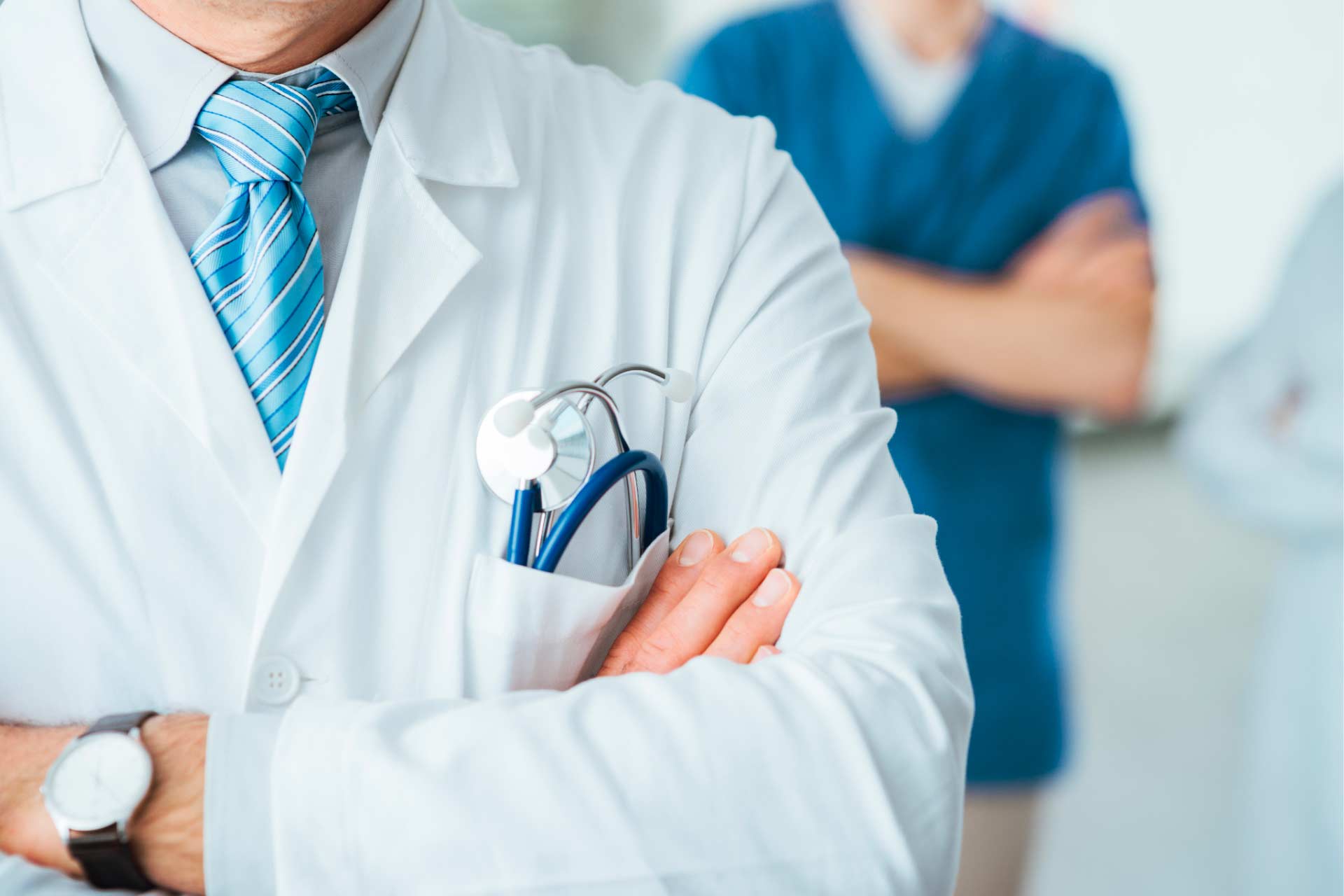
Addressing Stigma in Healthcare
Public acceptance of cannabis is strong across nearly all age groups, and more states are voting to legalize either adult-use (recreational) or medical marijuana.
However, if you’ve ever tried bringing up cannabis with your primary care provider, then you’re likely aware that the medical field lags behind. Your provider may have refused to discuss cannabis, or may have even questioned your motives. Why is that?
Some medical professionals still treat marijuana primarily as a drug abuse issue, not as a clinically-valid treatment option. Even physicians who might support cannabis therapeutics are often censored by their employers, including doctors practicing at the VA. In addition, both physicians and nurses may be wary of losing their professional licenses if they discuss cannabis since marijuana remains classified as a Schedule I drug and is still federally illegal.
Another issue is the gap in knowledge among many providers. According to a 2017 study, less than 10% of medical schools included medical marijuana in their curricula, leaving physicians-in-training on their own to learn about cannabis therapeutics.
Fortunately, awareness of cannabis therapeutics is increasing among the medical professions, with organizations like American Cannabis Nurses Association and Radicle Health providing continuing education to healthcare professionals like our own Leaf Nurses.
Our Leaf Nurses are fully-licensed registered nurses with clinical experience who’ve completed specialized training in cannabis therapeutics.
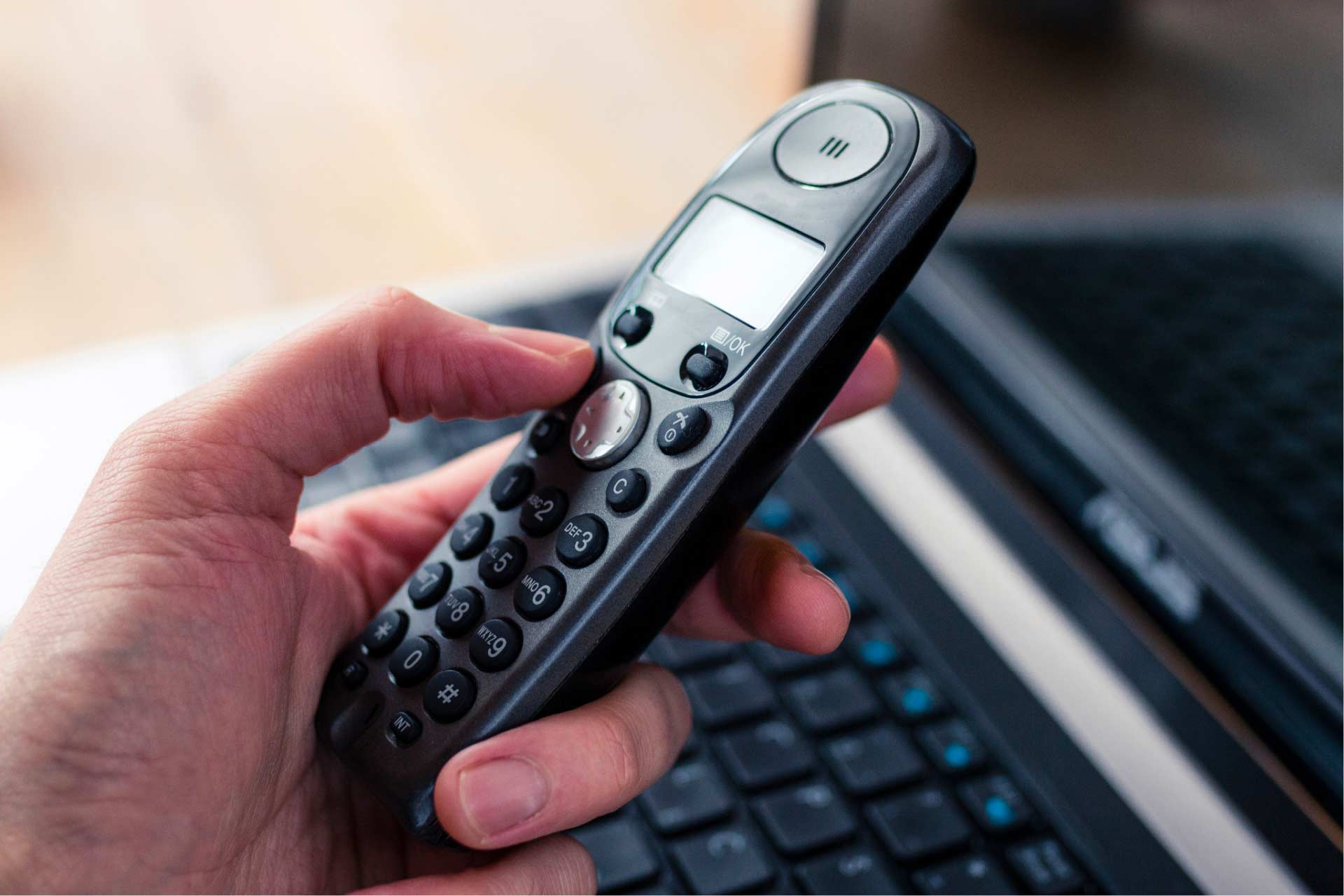
What Happens When You Call the Free Leaf411 Cannabis Nurse Hotline?
Our Leaf nurses approach calls to the hotline just as they would any other patient encounter, bringing nursing best practices into their work. This means that when you call the Leaf411 hotline, you should expect an experience similar to other telehealth encounters, though the focus is on education not diagnosis (diagnosis would be outside of our scope of practice!).
Generally, you can expect the following steps during your call:
- Background Information: While the hotline is anonymous, we gather non-identifying data (location, age, etc.) to ensure our services match caller needs. This information also helps us determine what cannabis and CBD hemp options exist based on laws in your home state. We may gather this information up-front or as part of the conversation, depending on the caller’s needs.
- Triage: Our Leaf Nurses ask a series of questions to understand your healthcare needs and goals for using CBD hemp or marijuana, whether you’re completely new to the plant or an experienced user. We’ll also ask questions about your activities of daily living to make sure that our education is tailored to your day-to-day realities.
- Your History of Marijuana Use: When considering marijuana or CBD hemp as a therapeutic tool, it’s important to factor in where you’re coming from. Are you an experienced user, or was the last time you consumed over 20 years ago? Have your past experiences been positive or negative? It’s okay if you have hesitations or concerns based on past experiences! Our Leaf Nurses are non-judgmental and provide balanced information based on your goals and preferences.
- Offering Education and Guidance: Once we have a clear sense of your healthcare needs and goals, we provide education and guidance that can save you time and money when it comes to finding the best cannabis options for pain, insomnia, or other needs. Our Leaf Nurses also understand that most callers want relief without impairment so that they can go about their daily lives.
We start with Cannabis 101 education on your endocannabinoid system, followed by general guidance on product types, routes of administration, and dosing. For example, our Leaf Nurses may suggest starting with a ratio product that contains specific amounts of THC and CBD. They also take into account any physical limitations that callers may have to recommend easy-to-use product formats, like gummies that can easily be divided into smaller doses. - Follow-Up Options: If you’re calling us at the very beginning of your cannabis journey, wondering where to start, you’re not alone! Many of our callers are new to marijuana or CBD hemp. We understand that as you begin trying different products and learn more about cannabis, additional questions may come up. While the hotline is anonymous, we do take notes as part of our nursing practice, including your phone number. That makes it easy for us if you have follow-up questions so that we can pull up those past notes and pick up right where we left off. You can also request to speak with the same Leaf Nurse you previously talked to, though we may need to schedule a call-back time based on our nurses’ schedules.
Want to hear what it sounds like to call the hotline? Colorado Public Radio’s On Something podcast gave us a test call, and also talks to Katherine about the hotline’s work.

How the Leaf411 Hotline is Different than Other Resources
The Leaf411 hotline is unique in that we’re the only free RN-staffed cannabis health resource in the U.S. (at least that we’re aware of!).
There are many free online resources for general learning, including our own Leaf Library. But when it comes to questions specific to you–your health goals and needs–those are best addressed by a trained clinician, not someone without a medical background.
Other cannabis clinicians provide individualized education, but they charge patients for the service. However, we decided to do things differently at Leaf411, to ensure that anyone and everyone would have access to the same professional and trustworthy cannabis information.
Your Calls Demonstrate the Need for Clinically-Backed Cannabis Education
Whenever you choose the non-profit Leaf411 hotline as a resource, you’re supporting the need for balanced, unbiased clinically-backed education on marijuana and CBD hemp. We point to hotline’s overall call volume as proof when we talk to grantmakers, industry or public health partners.
We know some people would like to support the non-profit hotline in other ways as well. Sign up for our newsletter below to stay up-to-date on upcoming fundraising initiatives, as well as our upcoming Leaf Learning: Get the 411 series events!
Leaf411 Affordability Program Q&A
Medically reviewed by Katherine Golden, RN
Written by Denise Rustning
Leaf411’s new Affordability Program was created to help offset financial challenges many people face when accessing legal cannabis or CBD hemp products.
We know you have questions about the program. Below, we’re sharing some answers to questions we commonly hear. Keep reading to learn more about the program and how to apply.
What does the Affordability Program provide?
The Affordability Program features two components:
- Working with manufacturers and dispensaries to offer low-cost CBD hemp and marijuana products to qualifying patients. Manufacturers are often eager to share deeply discounted or donated products that might otherwise go unused or be discarded due to product expiration.
- Creating scholarships to reduce costs associated with medical marijuana card evaluations, with a priority placed on pediatric evaluations. The State of Colorado requires pediatric patients to undergo two independent provider evaluations for a medical card. This means most parents need to drive to two different clinics, take time off for two different appointments which doubles the cost for their families.
Do I need to live in Colorado to participate?
Initially, the Leaf411 Affordability Program will be limited to Colorado residents and cannabis businesses, with future plans to extend it to other states that have legal cannabis in place. Why is that? Individual states have unique restrictions and regulations. As we expand, we want to make sure our Affordability Program remains compliant with all state and local laws.
Note: CBD hemp is federally legal and can be legally shipped across state lines. We invite CBD hemp retailers to contact us if you’re interested in participating in Leaf411’s Affordability program either in your own state or at the national level.
What are the income eligibility criteria? Do you take into account extenuating circumstances like recent job loss?
We use a means test to determine eligibility, which is why we ask for your gross monthly income. Our means test is based on guidelines that you’re likely familiar with, including Medicare/Medicaid, TANF and SSI.
However, we realize that your monthly income may not be the full story. For many people, the pandemic has resulted in either reduction in pay or outright job loss. Other people are finding themselves stretching their dollars even further as they provide extra support to family or friends.
The bottom line for us that we don’t want cost to be a barrier to accessing CBD hemp or cannabis for health concerns. If you’re not certain whether you’ll qualify, reach out to us and let us know your specific circumstances and we’ll do all we can to help.
Can I apply on behalf of my child or someone else?
Yes. Parents and legal guardians are able to apply for pediatric patients and disabled adults if unable to do so themselves.
Can I apply on behalf of my pet?
We love our four-legged friends at Leaf411, and have even seen firsthand the power that CBD has in improving our pets’ quality of life! However, our Affordability Program’s focus is only on people, not pets, at this time.
Do I need to already have experience using CBD hemp or marijuana to qualify?
No, you do not need any past experience with CBD hemp or marijuana to participate in our Affordability Program. In fact, our Leaf411 nurses can help you determine the best place to start in conjunction with the Affordability Program–for instance, if you’re wondering whether you need a medical marijuana card, or if you have questions about CBD hemp versus marijuana bought at a dispensary. Call us for free at 844-LEAF411 (844-532-3411) or chat us from the Leaf411.org homepage during hotline hours with your questions.
Where can I find the application?
You’ll find the application at the “Apply Now” button on the bottom of our Affordability Program page, below the logos of our program partners and sponsors.
The application form seems intimidating. Will I have to supply all of my medical records to you?
No, we do not require you to submit medical records or disclose detailed health information. However, we know that some participants may voluntarily share sensitive health information with us which may be shared on a need-to-know basis within the program staff.
What steps are you taking to keep my information secure?
Your information will never be shared outside of Leaf411’s organization and all applications are kept in an online file within the organization’s operating system.
How do I find out if I qualified?
After you apply, you’ll receive an email within about 48 hours letting you know if your application was approved or denied.
Once I qualify, then what happens?
Approved applicants will receive an email letting them know they have been accepted into the Affordability Program. They will then start receiving notifications via email and have access to a private patient portal page on the Leaf411 website that will detail discounted medicine and products, services and other information for participants.
How long am I part of the program?
You are enrolled in the program on an annual basis, and will need to reapply each year if you wish to continue.
What happens if I don’t qualify? Can I appeal or request more information about the decision?
Our goal is to improve access to CBD hemp and marijuana for patients who otherwise might not be able to afford it. We’ve put safeguards in place to ensure we reach as many people in need as possible, while also protecting the program from abuse that could quickly deplete our resources.
We will always reach out to you to answer questions if your application is denied. We understand that in some cases, misunderstandings about the application process may play a role, or that technology issues, language barriers or other circumstances may be an issue as well. Our goal is to help you, whether that’s through the Affordability Program, education or other resources.
Can the med card scholarships be used at any provider offering MMJ evaluations?
The med card scholarships can only be used at providers who give discounts through Leaf 411’s Affordability Program. You’ll receive a list of those providers after qualifying for the program.
What CBD hemp and marijuana companies are participating?
You can find a list of participating industry partners at the bottom of our Affordability Program page on our website. Once you qualify for the program, you’ll receive updated information about specific products available, as well as where to purchase them.
I still have more questions. Who can I contact?
Amy Dawn Bourlon-Hilterbran, Affordability Program Chair, can help with any questions you have about the Affordability Program, whether you’re a patient or potential industry partner.
For other questions, use our Contact Page to get in touch.
Sign up for our newsletter below to get the 411 on our upcoming initiatives and events!
Introducing Amy Dawn Bourlon-Hilterbran, Leaf411's Affordability Program Chair

Medically reviewed by Katherine Golden, RN
Written by Denise Rustning
If you’ve taken a look at Leaf411’s About Us page recently, you’ve likely noticed several new faces. Today we’re introducing Amy Dawn Bourlon-Hilterbran who joined the Leaf411 Board of Directors as our new Affordability Program Chair.
Bourlon-Hilterbran is a tireless advocate for cannabis patients, including veterans and families with children whose lives have been transformed through plant-based medicine. The Green Market Report lists Bourlon-Hilterbran as one of the Most Important Women in Weed in 2020, and many publications including GRAM, Westword, and Weedmaps have profiled her work.
A Passionate Advocate for Patients' Access to Cannabis
“Our son had been on varying, numerous pharmaceutical pills and combinations to combat his daily seizures, but none of them stopped them, and all had side effects. Some side effects were hideous, some sent him into anaphylactic shock, some started shutting down his organs. The doctors told us to take our son home, that there was nothing more they could do,” Bourlon-Hilterbran said.
“Because I was left with no other choice, I chose to try cannabis for our son. It saved his life. Cannabis stopped his seizures when no pharmaceuticals did. I am ashamed to say it took those extremes (before trying cannabis as an alternative), but I want other families to learn from my mistakes. Cannabis should be a legal option and not the last illegal resort.”
At the time, AMR and Leaf411 didn’t exist, so Bourlon-Hilterbran had to spend hours researching and talking to other families she tracked down who had similar experiences.
“It was heartbreaking and extremely overwhelming at times, trying to gather information, talk to other parents, find the missing answers. I vowed I would do whatever it took to make the process easier for other families who had to relocate from another state or country to legally access cannabis as a medicine,” she said.
Every day, Bourlon-Hilterbran hears from parents who are navigating similar situations that she faced, who are either confused or conflicted about how to best help their children. She advises:
“Never forget that you are the lead on your child’s medical team. No one cares more for your child or knows your child better than you. Be respectful, be educated on your child and their condition, but make sure your doctors and family know that you will be an active member of the conversation when it comes to the health of your child. Never. Give. Up.”
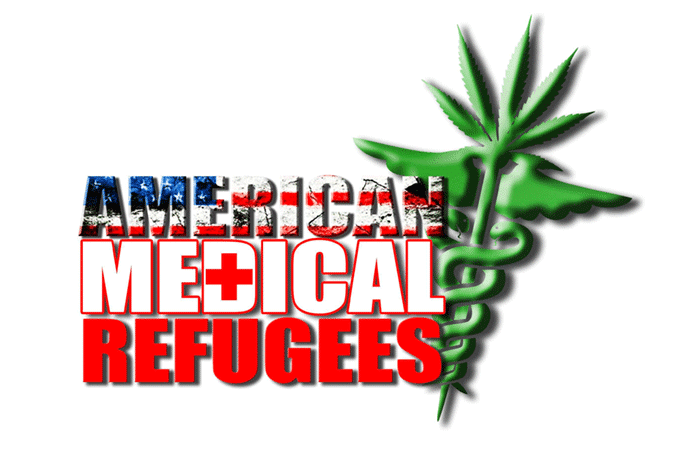
American Medical Refugees: Serving as a Resource for Patients and Their Families
Bourlon-Hilterbran’s experience led her and her husband to launch American Medical Refugees. AMR has directly helped thousands of patients through in-person events, information sharing and online community-building, all incredibly valuable skills that Bourlon-Hilterbran will bring to her role at Leaf411 as well.
Bourlon-Hilterbran also shares her experience with other AMR families so they can advocate for legislative changes to improve access to safe, legal cannabis in their home states.
“We’re all in this together, and we need to stand united. Political party affiliation doesn’t matter when someone is chronically or terminally ill. We see Republicans and Democrats fighting side by side to legalize cannabis, even in my own family,” she said.
Although Bourlon-Hilterbran and her family now make Colorado home, their Oklahoma roots run deep. In 2018, Oklahoma voters approved medical marijuana, creating a new option for thousands of patients who could not afford to move out of the state to access legal cannabis. Bourlon-Hilterbran played an active role in that legislative process, working with Oklahoma Senator Connie Johnson and other critical entities to ensure the newly enacted laws put patients first.
While a lot of progress has occurred, stigma, stereotypes and barriers still exist. This came to light in 2019 when CBS rejected a medical cannabis ad created by Acreage Holdings for the Super Bowl. Bourlon-Hilterbran’s son was one of the patients featured in the ad.
For Bourlon-Hilterbran, the need to address stigma and stereotypes while also providing education was a major impetus for her planned launch of the Oklahoma Cannabis Expo in March 2020. Unfortunately, the emerging COVID-19 pandemic put a stop to all large public events, including the expo. Bourlon-Hiterbran is working closely with city and state officials to find a new date for the Oklahoma Cannabis Expo in Fall 2021.
Forging a New Role at Leaf411 as the Affordability Program Chair
When it comes to her role on the Leaf411 Board of Directors, Bourlon-Hilterbran is laser-focused. “My goal is to bring my educational and medical experience, along with my patient and industry networks together to offer patients support, information and access. Joining this team is a highlight of my life. The potential to directly impact more patients via free medicine and medical appointments makes me incredibly happy and proud,” Bourlon-Hilterbran said.
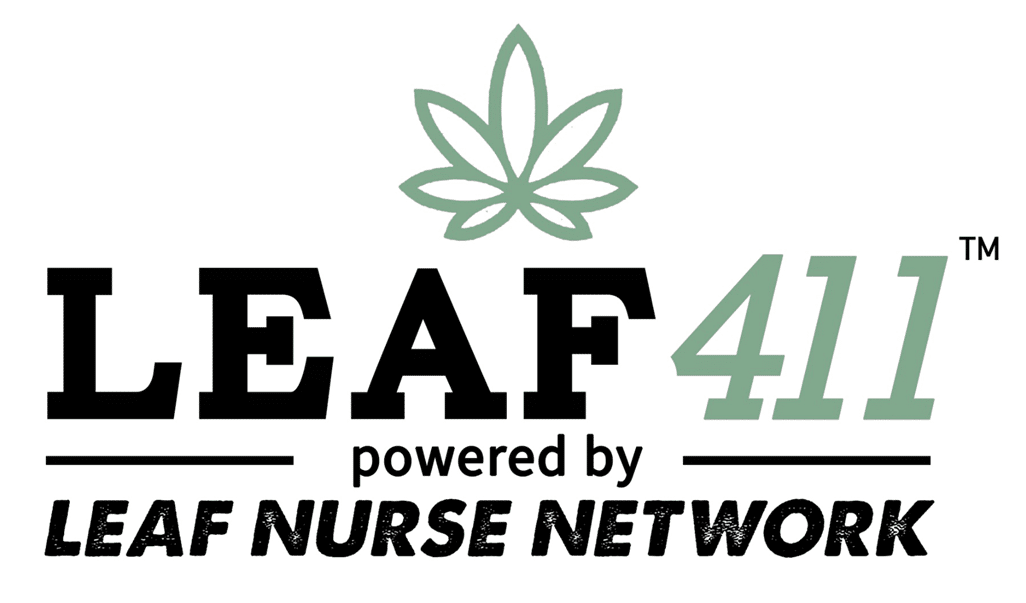
Leaf411's Commitment to You as We Grow
As Leaf411 continues to grow and innovate new programs, our core mission remains focused on the public, providing free, clinically-sound education and directional support about the safe use of legal cannabis (both CBD hemp and marijuana sold legally in dispensaries). We’re also committed to working with stakeholders to address outdated stereotypes and stigma, while also improving the public perception of the cannabis industry.
Our newest additions to both our Advisory Board and Board of Directors, including Bourlon-Hilterbran, will help ensure that our education and services that are fully compliant and transparent as we grow, and that we remain true to our mission to you—the public.
Stay up-to-date with our latest events, programs and initiatives by signing up for the Leaf411 newsletter below!
The Leaf411 cannabis nurse hotline provides free, anonymous education and directional support to the general public about the safe use of legal cannabis. We partner with select business members who meet our rigorous standards to extend our education and outreach efforts.
